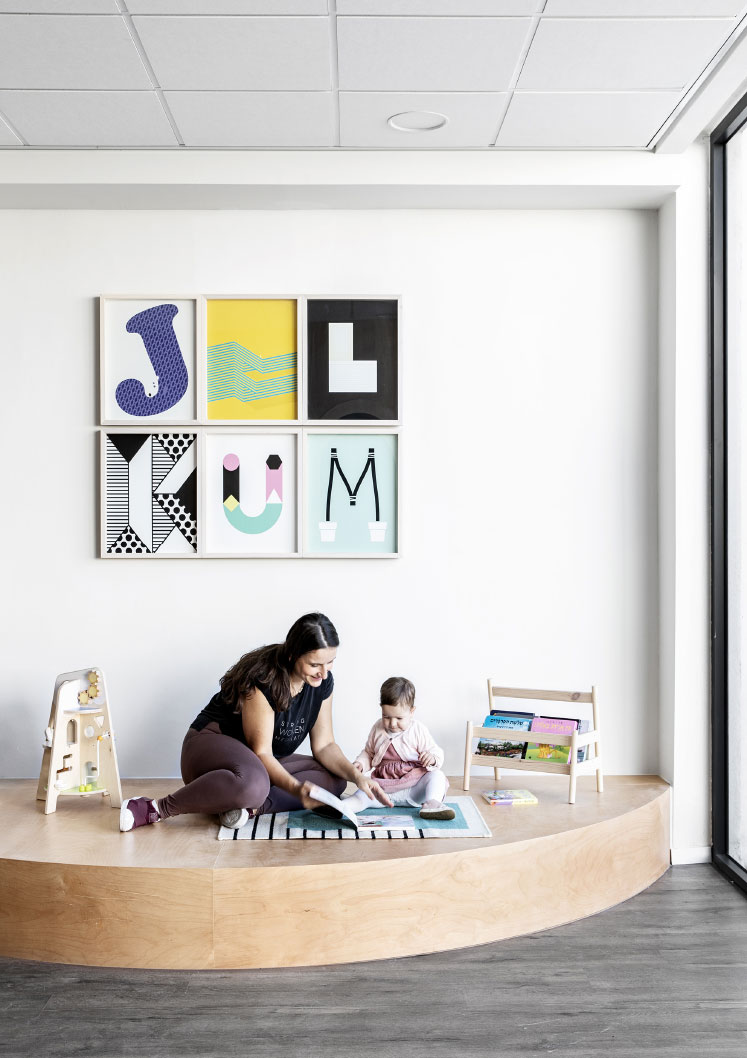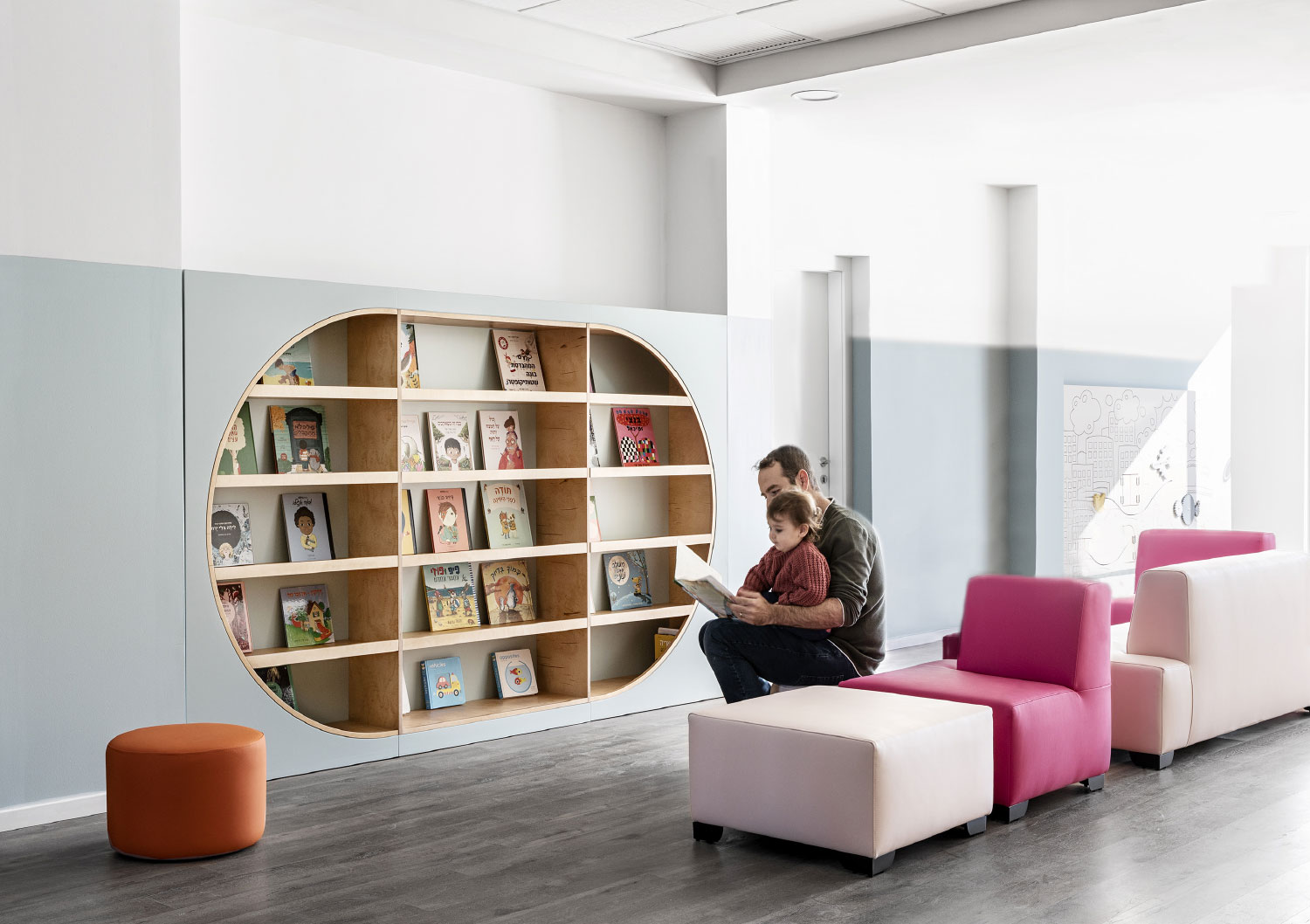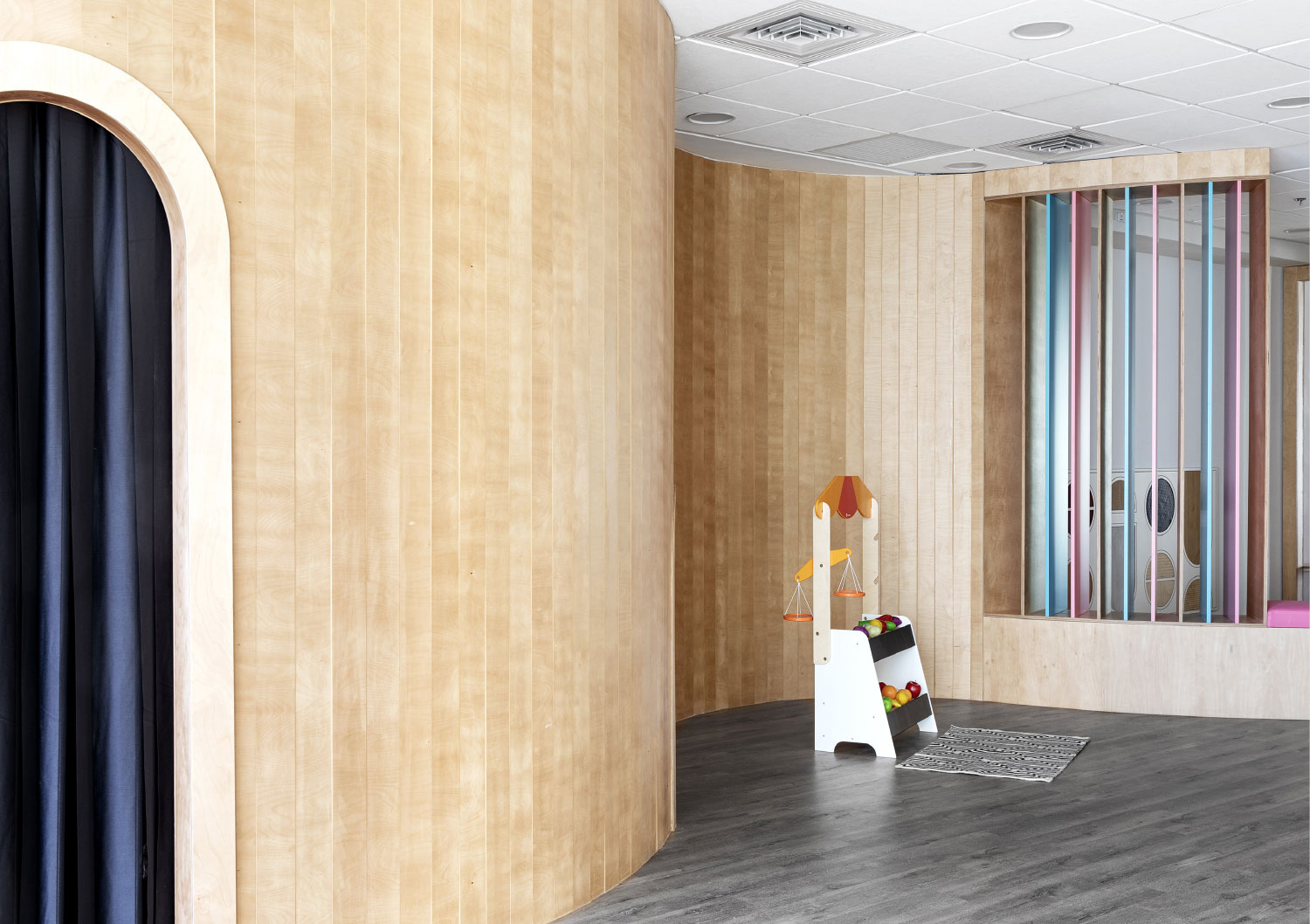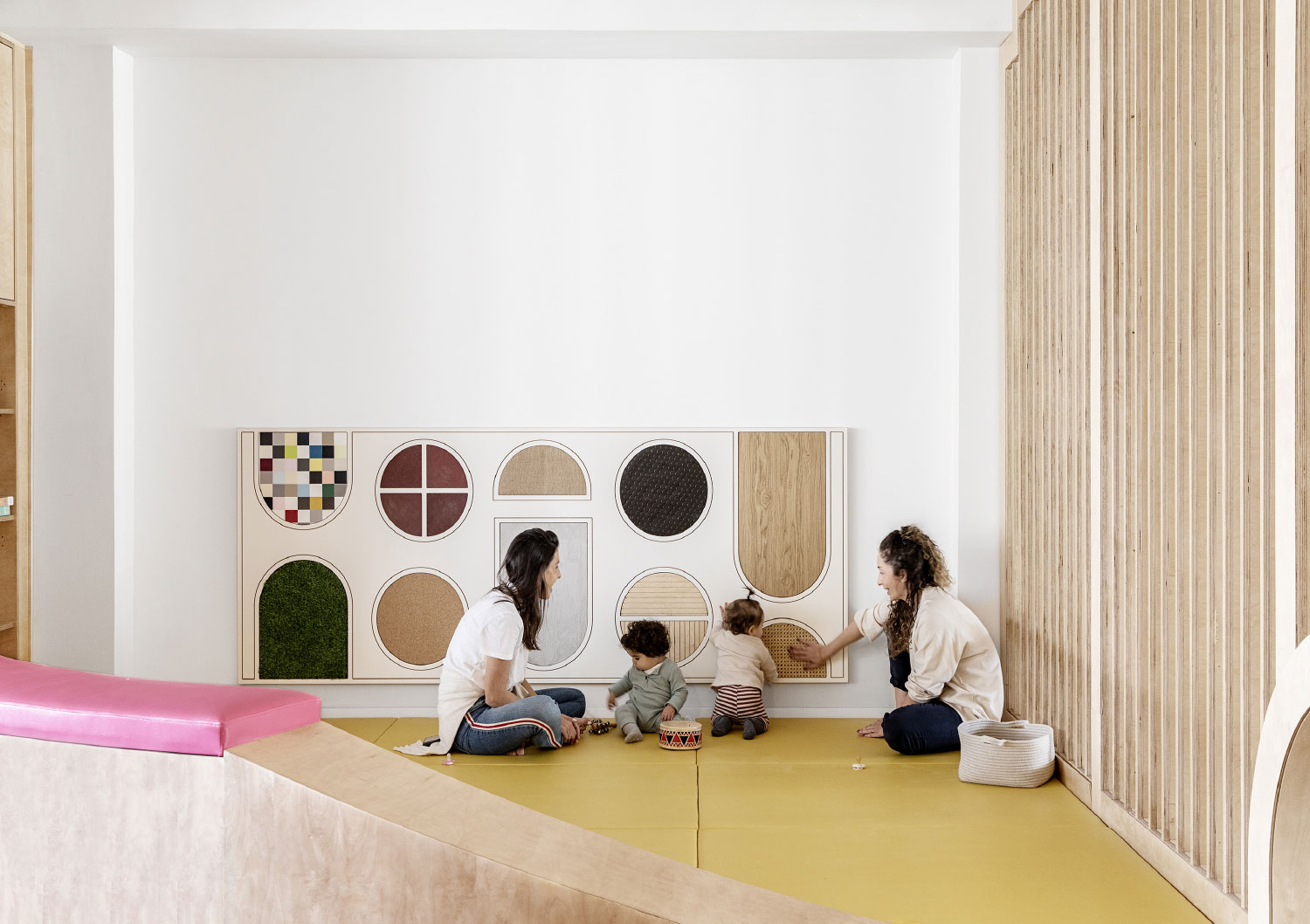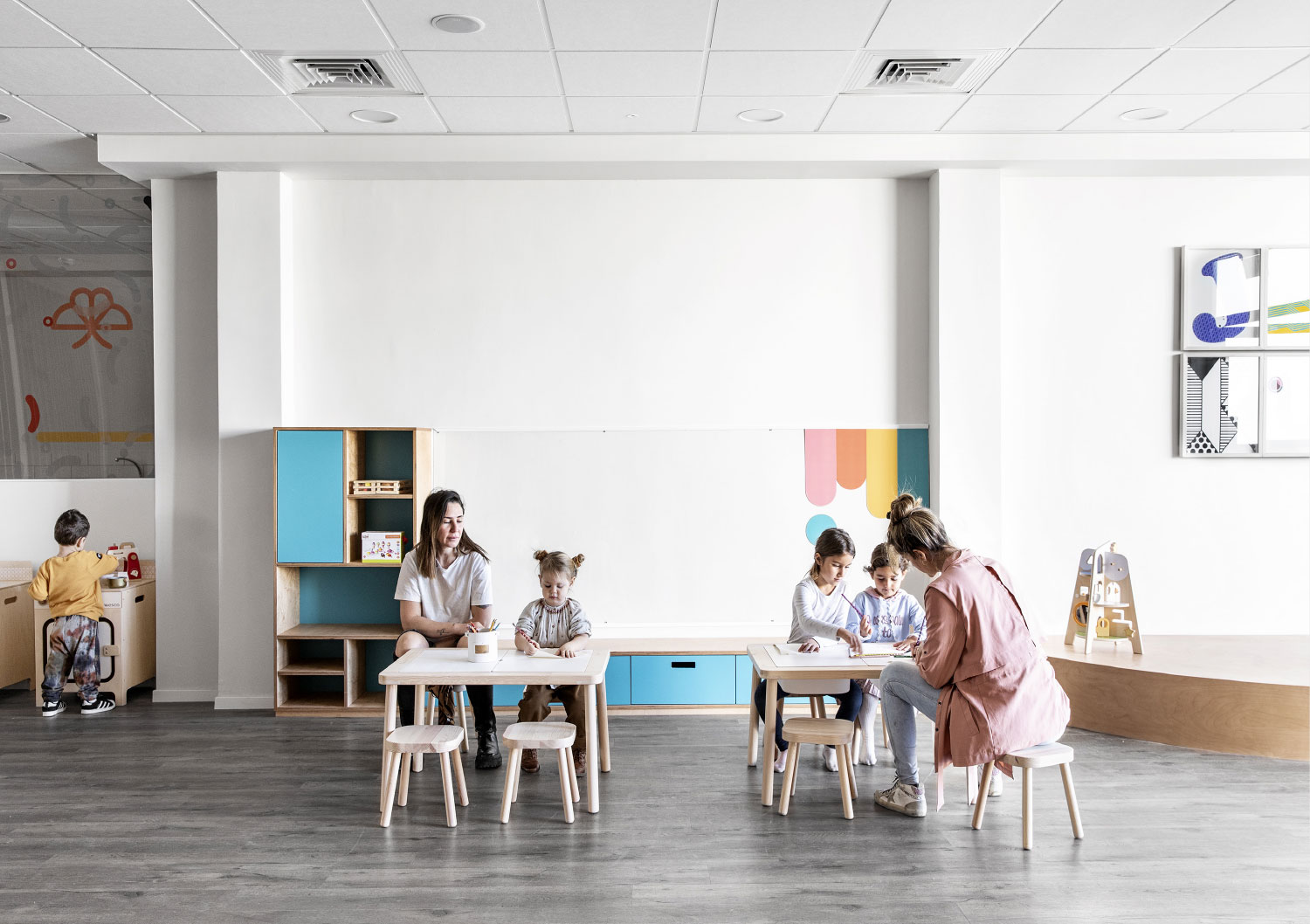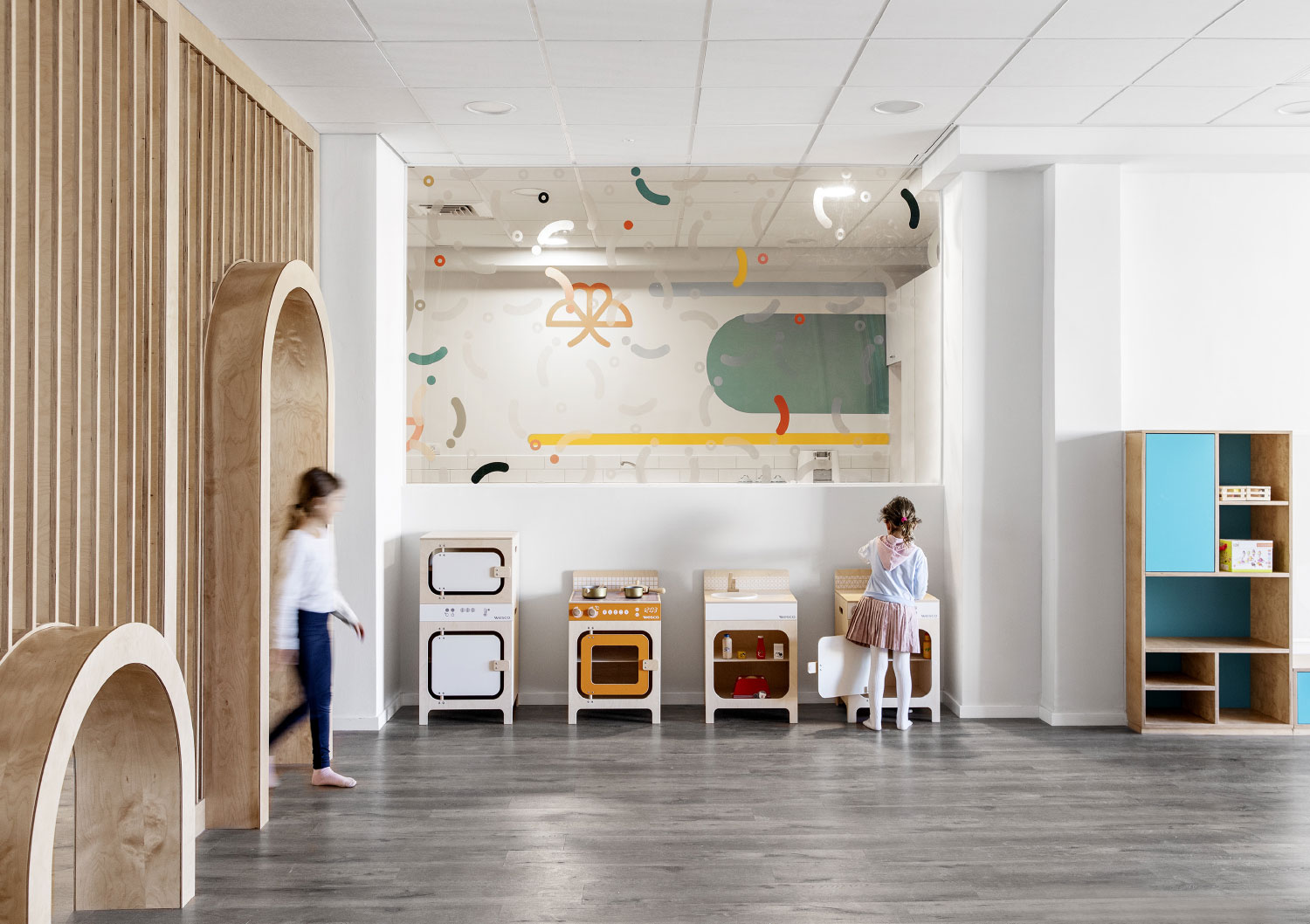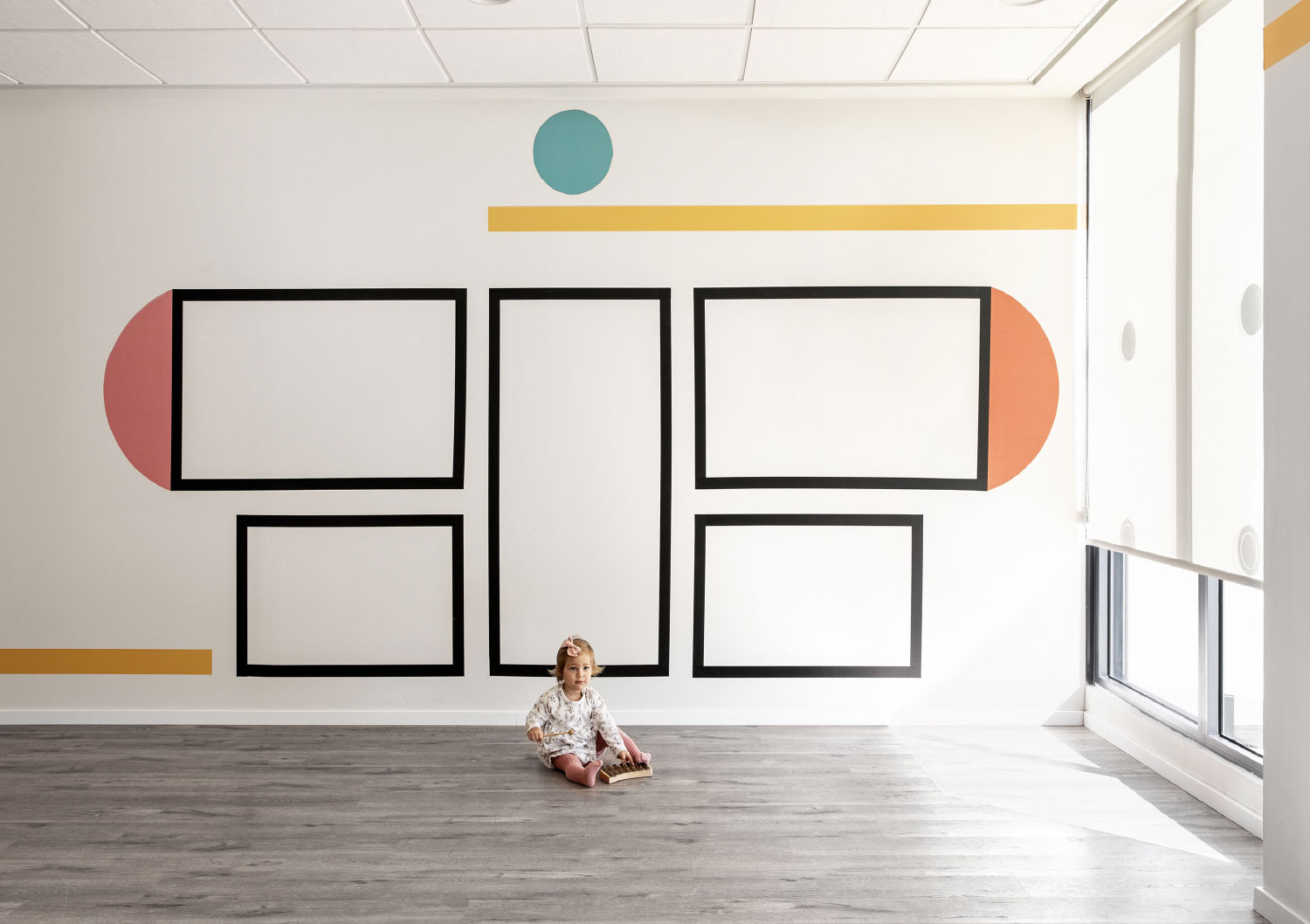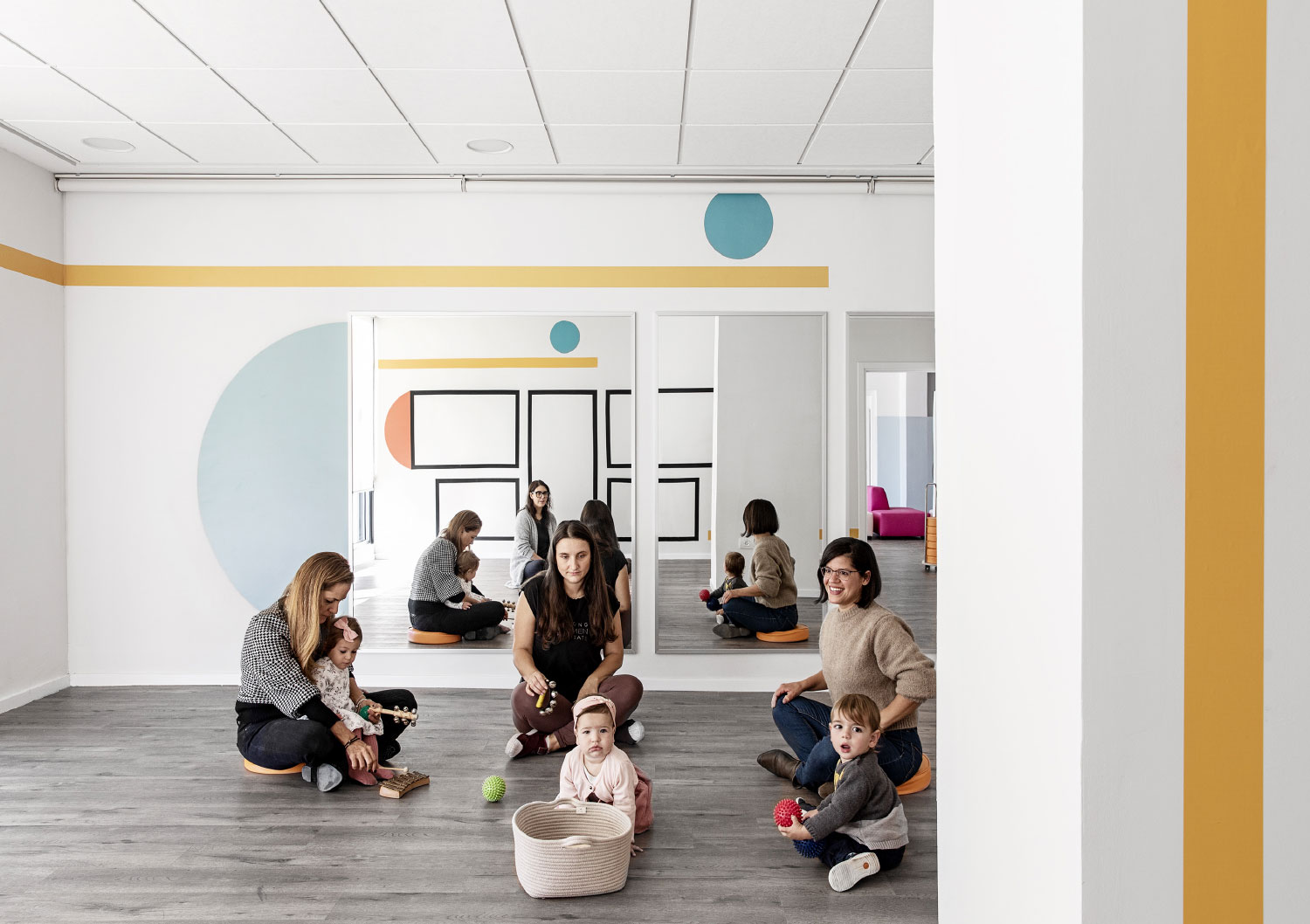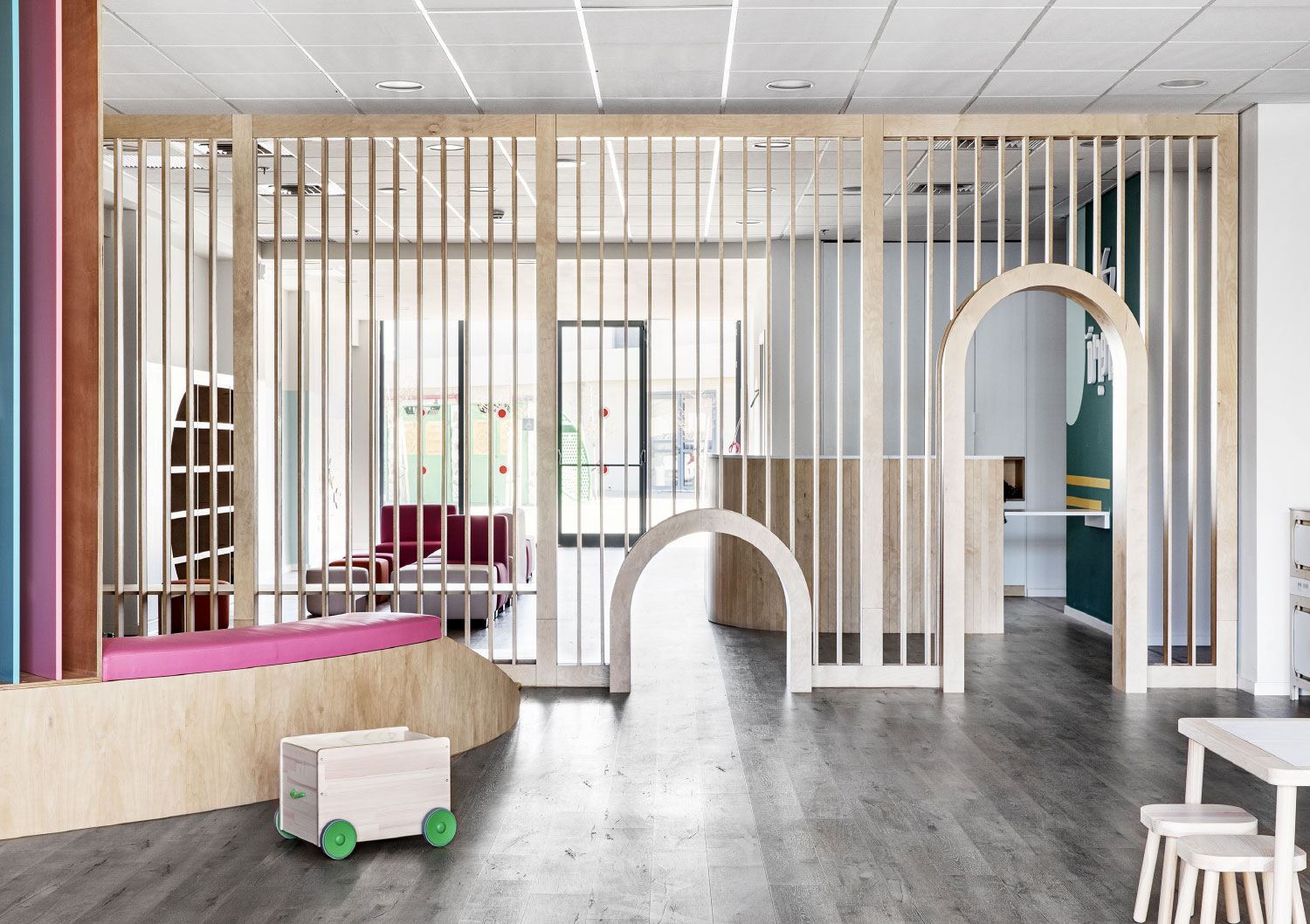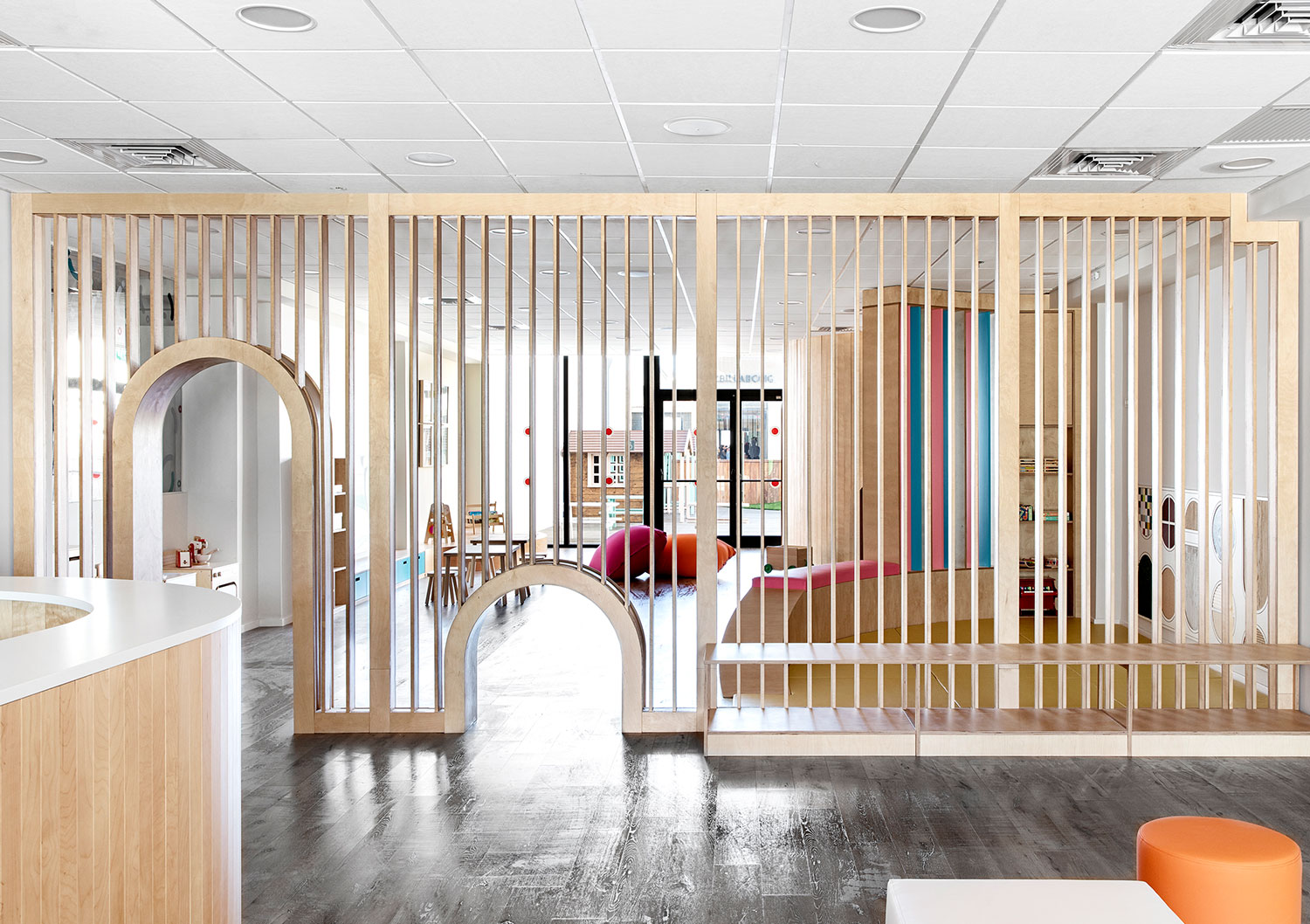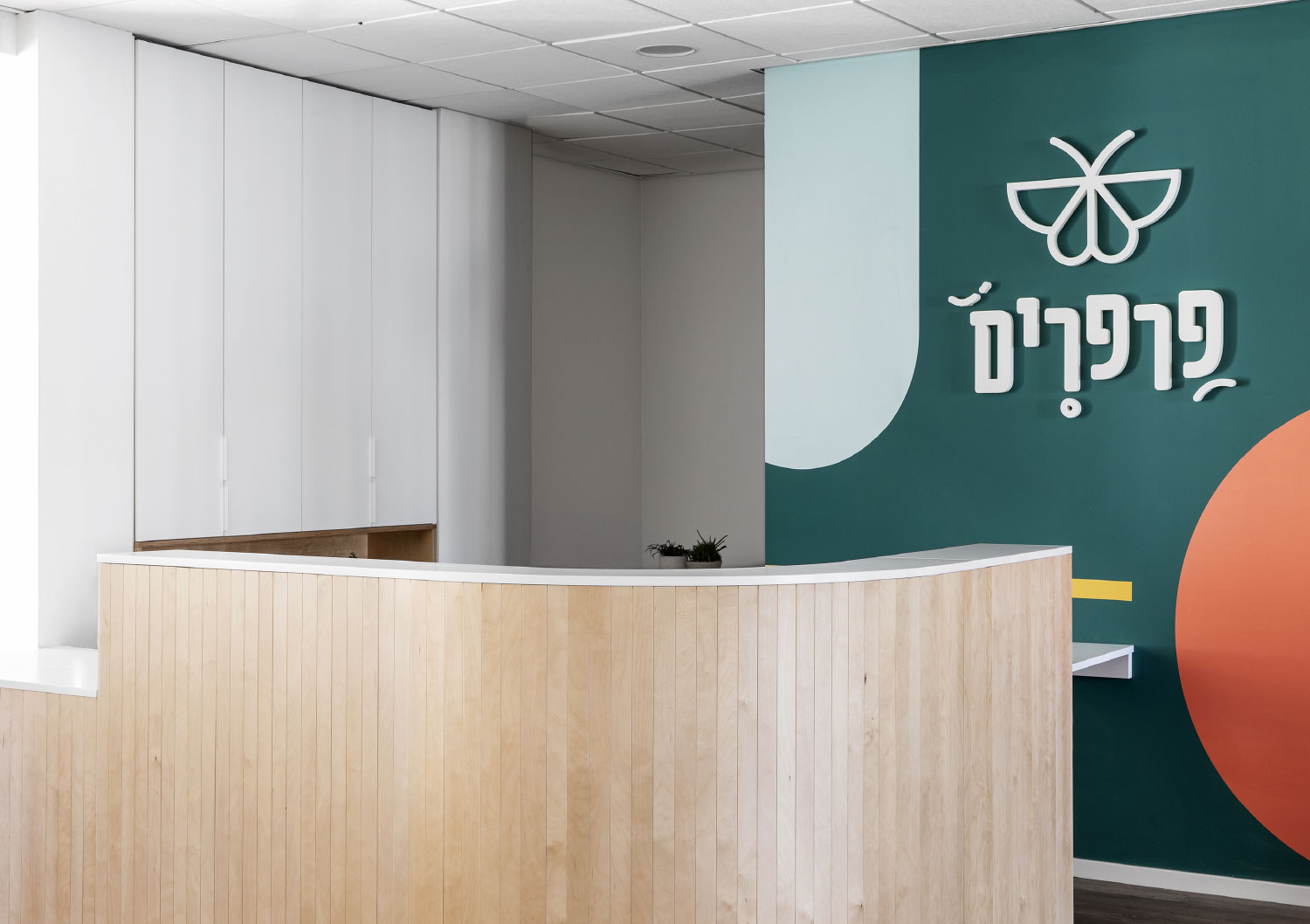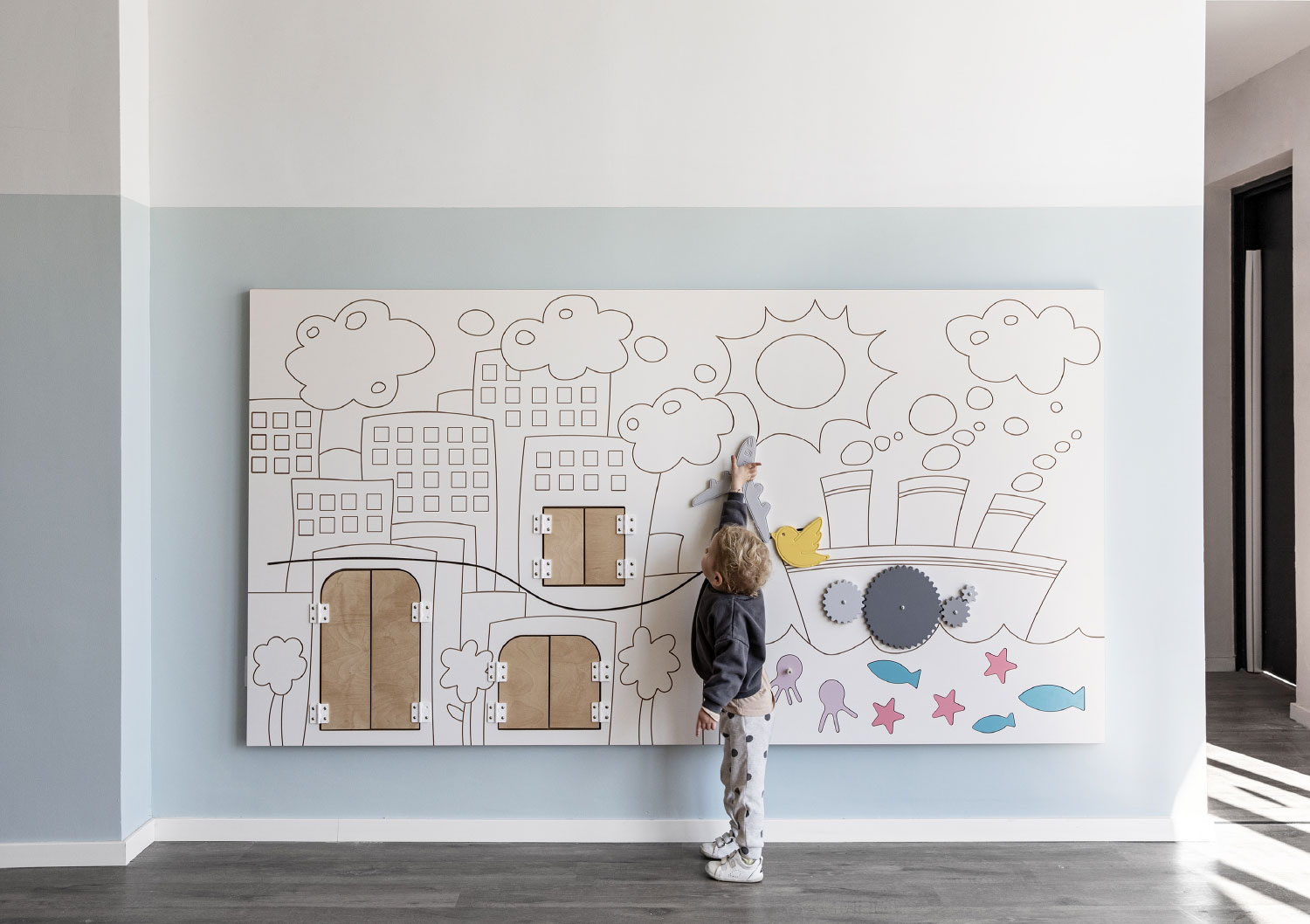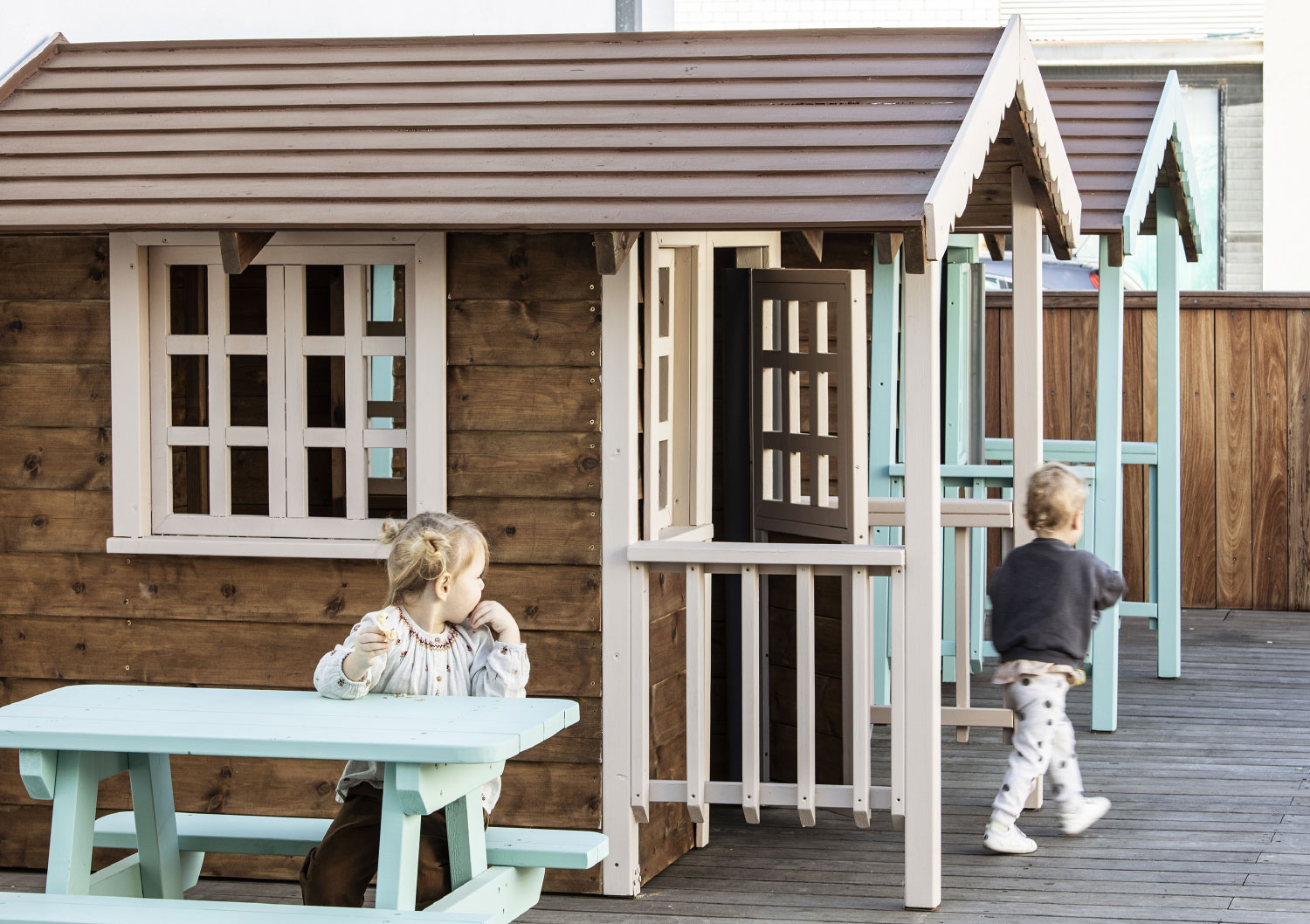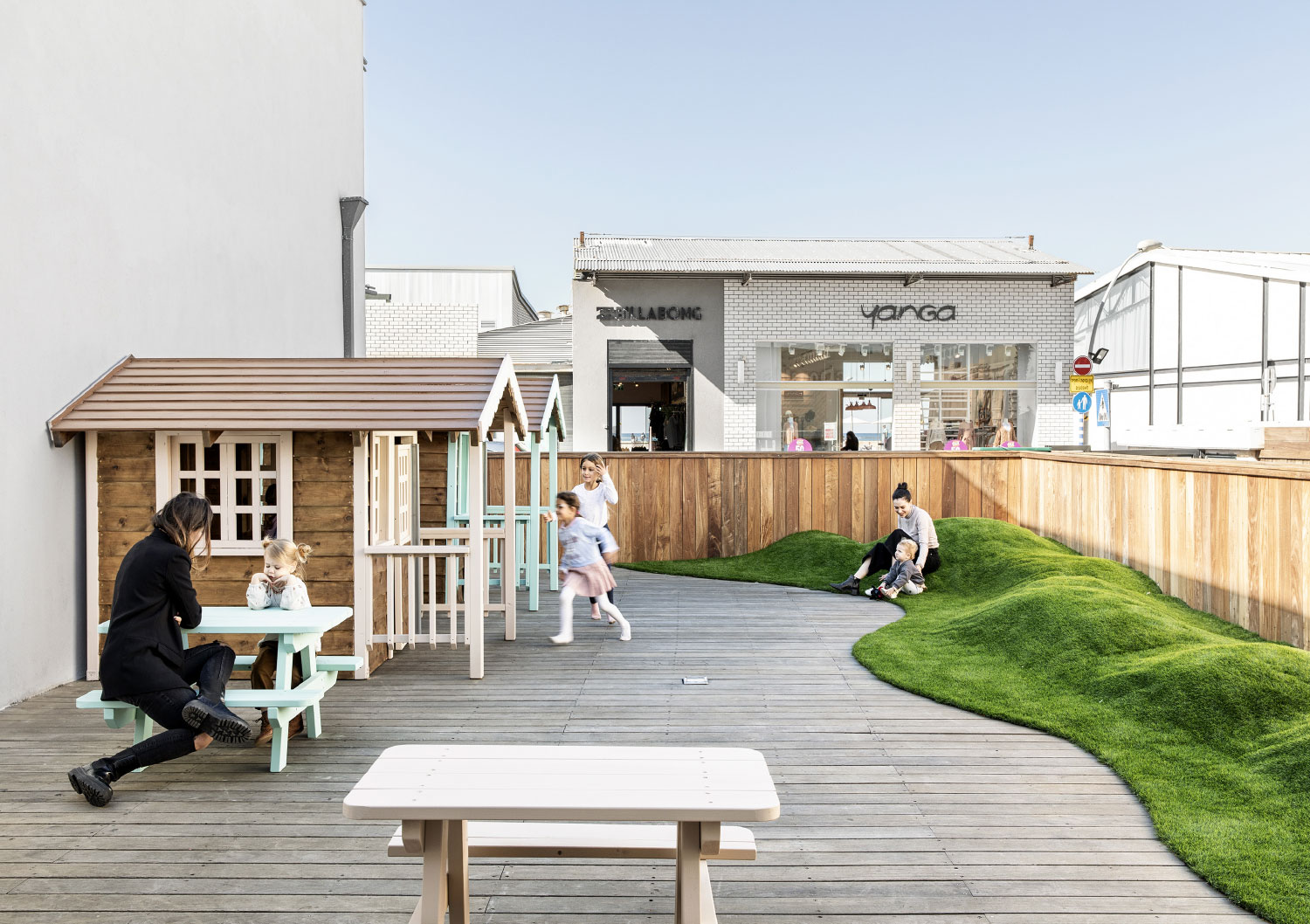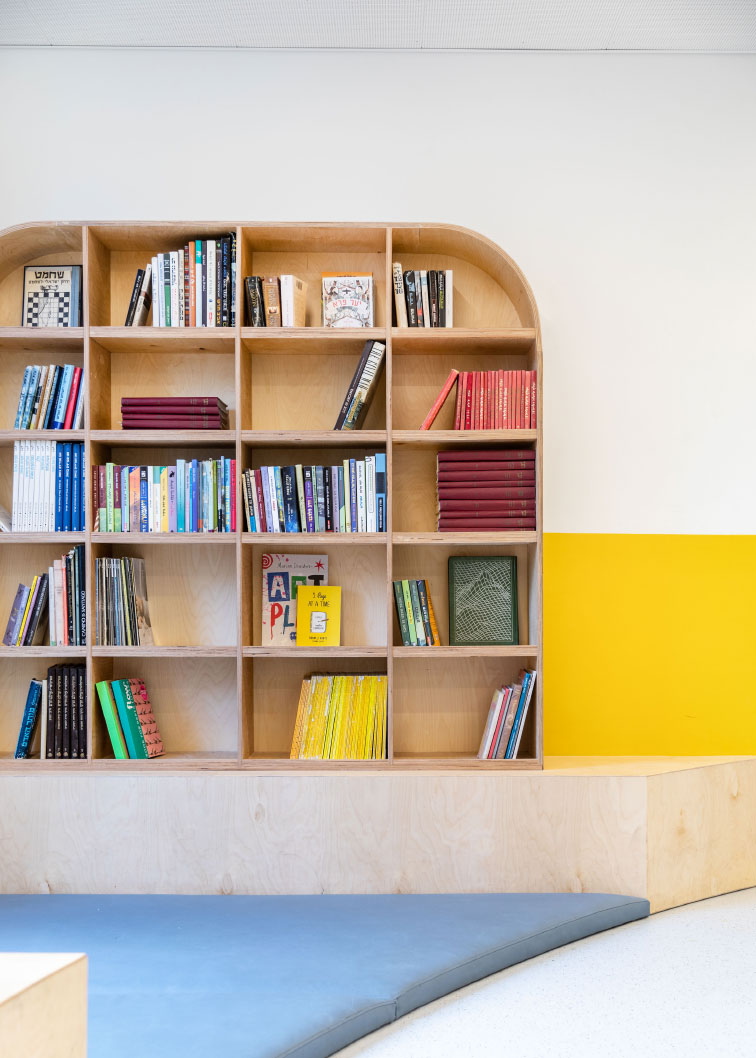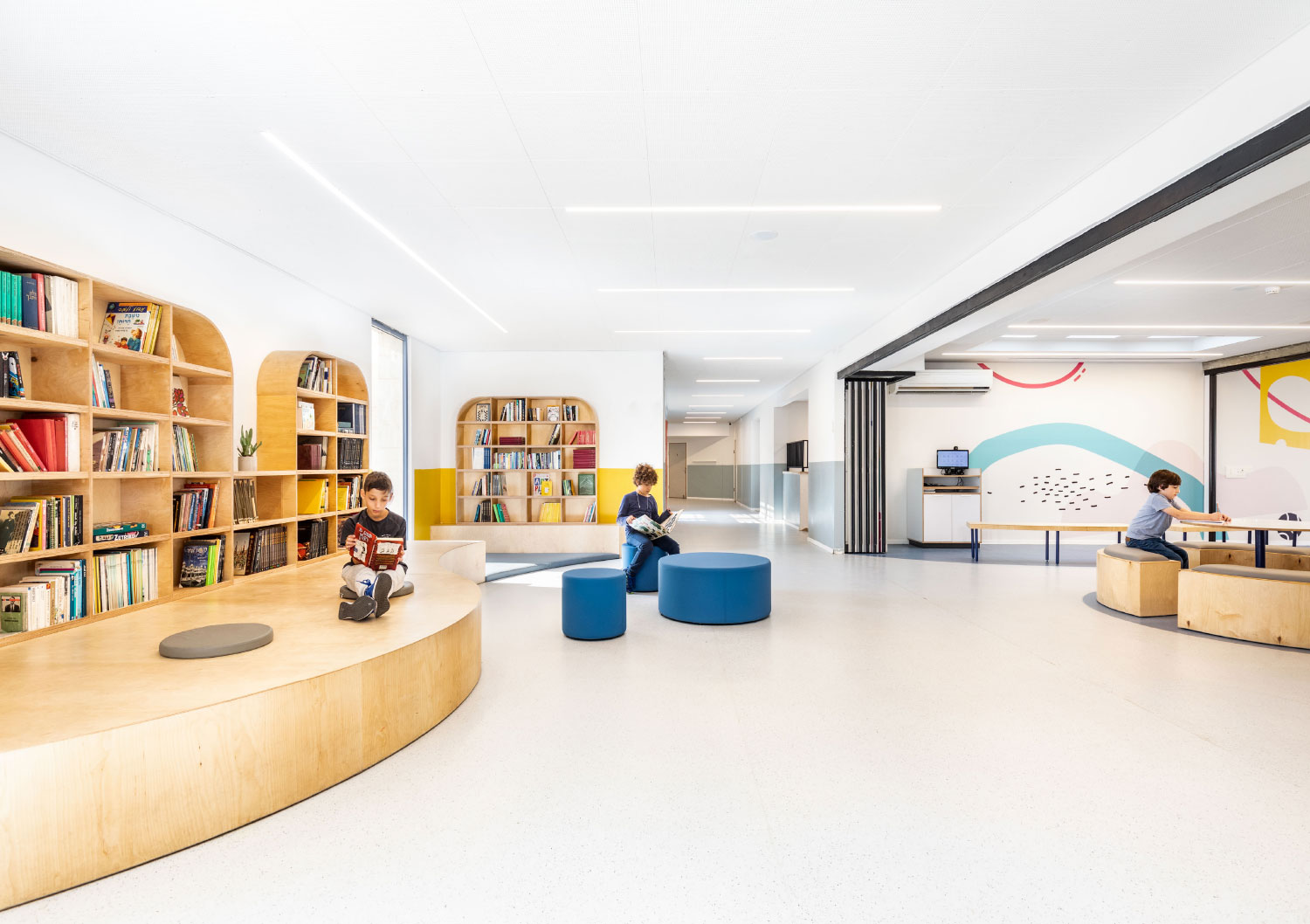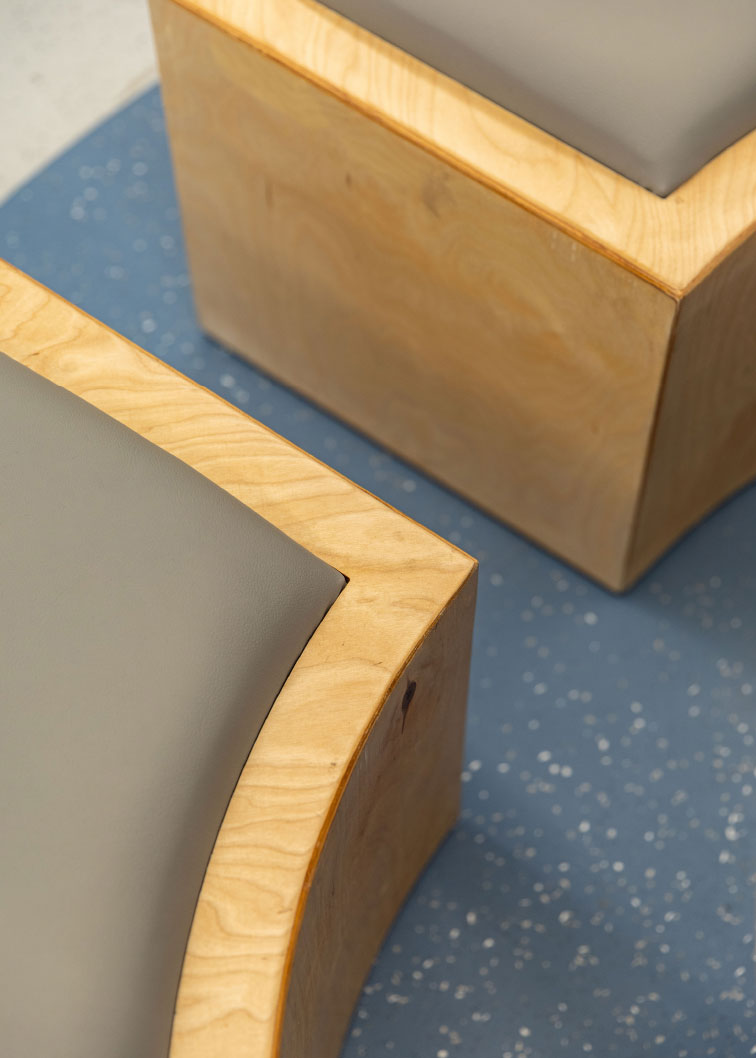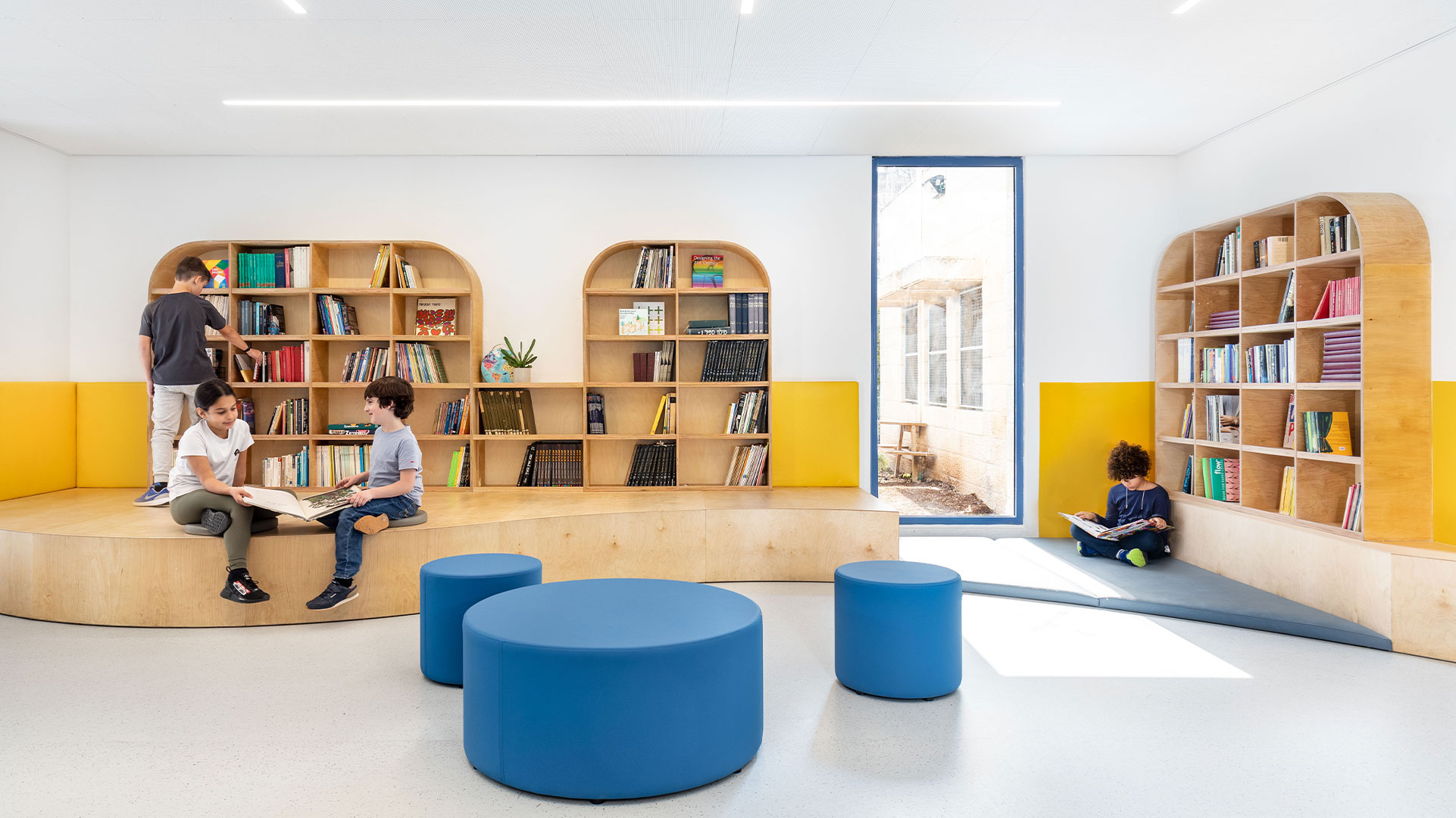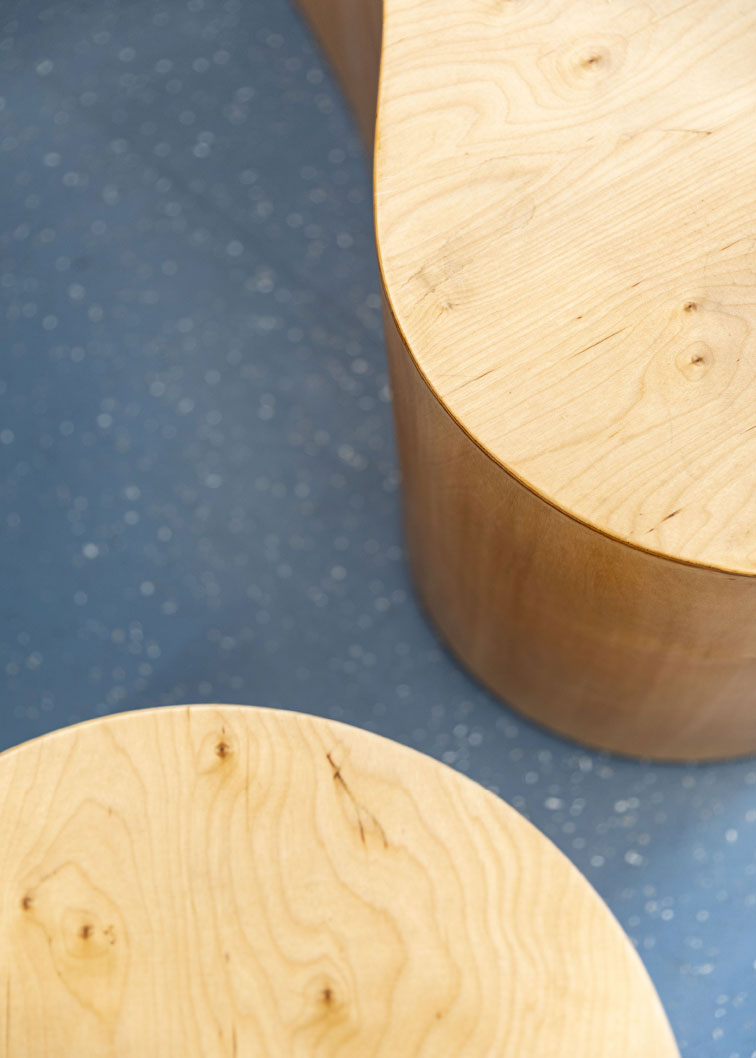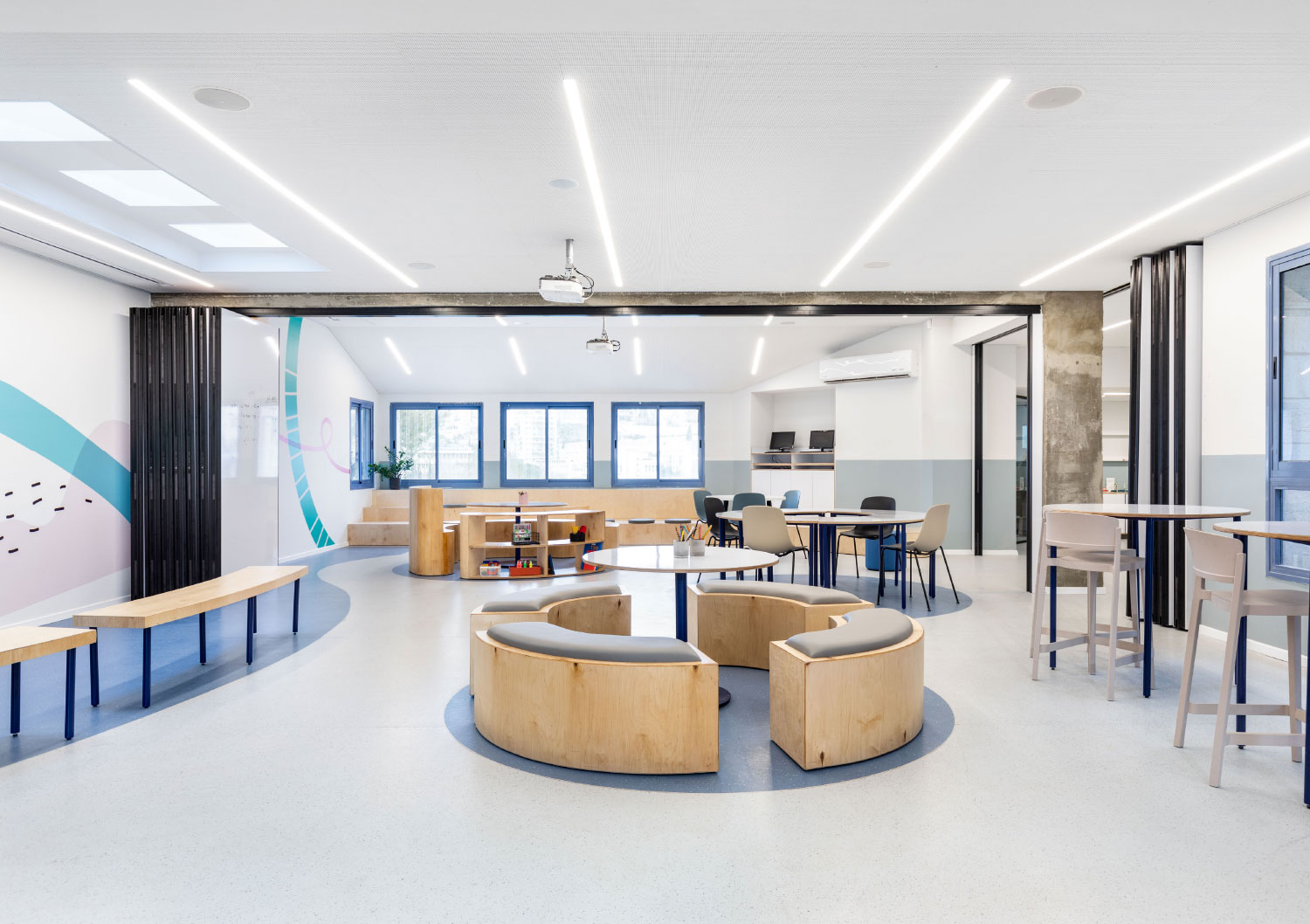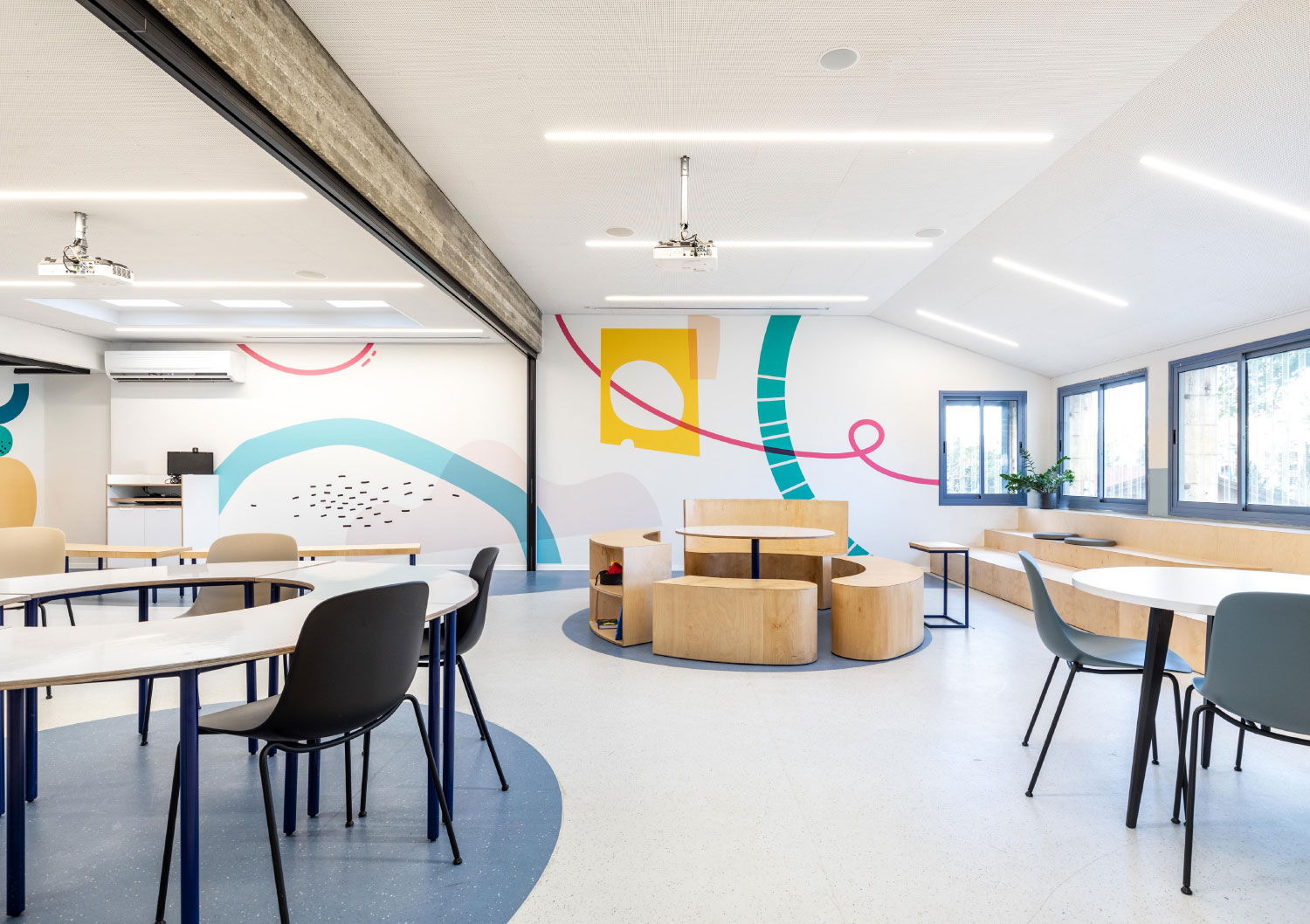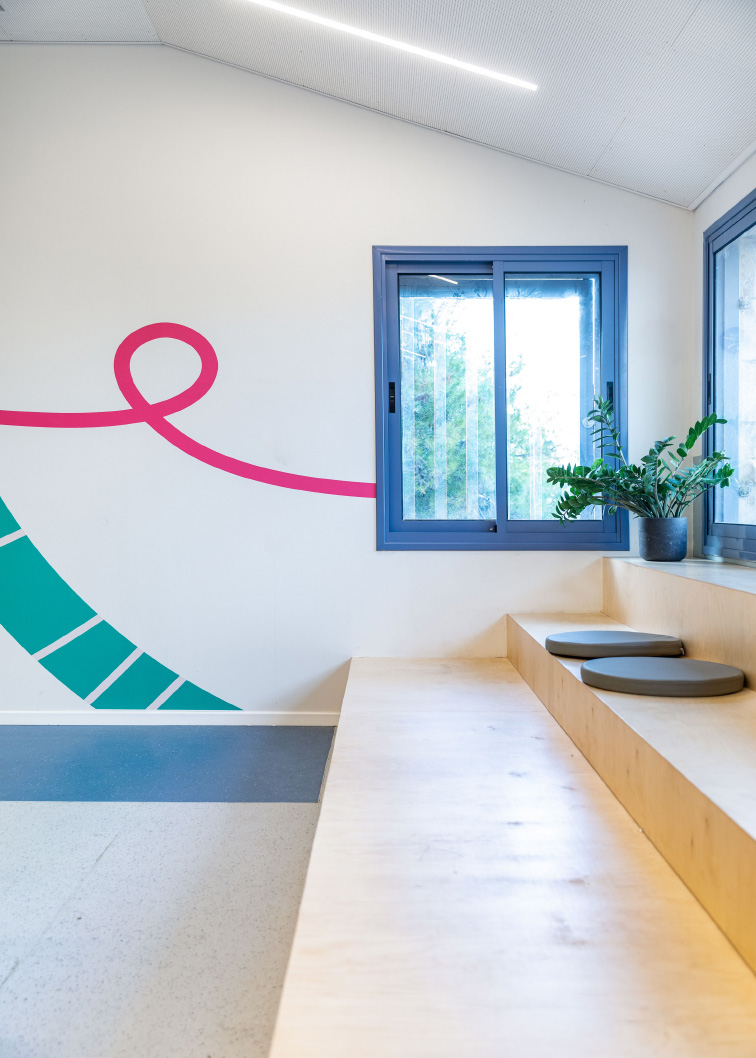A school for the gifted and accomplished, which integrates different types of learning spaces that support development of intellectual and emotional abilities of children from grade 3 to 9
A school for the gifted and accomplished, which integrates different types of learning spaces that support development of intellectual and emotional abilities of children from grade 3 to 9
Ofek School // Public spaces and classrooms
Ofek School in Jerusalem is designed to house approximately 1,400 gifted and accomplished children and teens in grades 3 to 9. Although and perhaps because of the fact that what the students have in common are high cognitive abilities, the school emphasizes not only the intellectual abilities of the gifted, but also the development of social and emotional skills, which are often the weak points of these children.
The process of developing the design strategy included fascinating in-depth conversations with the pedagogical team in which they explained the vision of the school and refined the intellectual and emotional needs of the children and the teaching staff so that it would be possible to translate their vision into a physical environment. One of the prominent insights that emerged from the conversations and later influenced the design was that the term gifted is an inclusive and broad definition and just like normal children, they differ from each other in their intellectual abilities, their areas of excellence, and their emotional development.
The design challenge was to create a learning environment suitable for a wide range of ages and different and diverse pedagogies. Another challenge arose from the nature of the studies at the school, since unlike regular schools where the children study every day, the children come to Ofek School only once a week as added enrichment to their routine studies. Since this frequency has an effect on the sense of belonging that the children develop to the school, the importance of designing a space where every child can find their comfortable and safe place was intensified.
Furthermore, the option to move between individual and group settings was a central motif in the needs raised by the team, and as a result, in the planning and design of the public spaces that were a significant part of the project, emphasis was placed on maximum modularity. The public spaces create a gathering area for a large number of children, but also offer extracurricular learning environments (individual, group, and informal) that enable exploratory learning, learning around a theme, and more. The elements that were planned and designed uniquely for the project are elements that allow changing the space for a variety of uses. In addition, we were asked to incorporate an inviting reading area into the public spaces, so an open library was integrated into the center of the school.
Along with cultivating intellectual abilities and imparting knowledge, the school also sees importance in the children’s emotional and social development. In conversations with the pedagogical team, it emerged that it was decided to have regular personal conversations with each child. These conversations, that are held regularly, require spaces that allow intimacy and therefore, in addition to the variety of options available in public spaces, we converted a classroom into a designated area for this purpose.
The school’s administration area was also redesigned as part of the project, with the belief that the pedagogical and administrative staff should also be taken care of and allowed to work in a pleasant and productive work environment.
Photo: Orit Arnon
Ofek School // Public spaces and classrooms
Ofek School in Jerusalem is designed to house approximately 1,400 gifted and accomplished children and teens in grades 3 to 9. Although and perhaps because of the fact that what the students have in common are high cognitive abilities, the school emphasizes not only the intellectual abilities of the gifted, but also the development of social and emotional skills, which are often the weak points of these children.
Ofek School // Public spaces and classrooms
Ofek School in Jerusalem is designed to house approximately 1,400 gifted and accomplished children and teens in grades 3 to 9. Although and perhaps because of the fact that what the students have in common are high cognitive abilities, the school emphasizes not only the intellectual abilities of the gifted, but also the development of social and emotional skills, which are often the weak points of these children.
The process of developing the design strategy included fascinating in-depth conversations with the pedagogical team in which they explained the vision of the school and refined the intellectual and emotional needs of the children and the teaching staff so that it would be possible to translate their vision into a physical environment. One of the prominent insights that emerged from the conversations and later influenced the design was that the term gifted is an inclusive and broad definition and just like normal children, they differ from each other in their intellectual abilities, their areas of excellence, and their emotional development.
The design challenge was to create a learning environment suitable for a wide range of ages and different and diverse pedagogies. Another challenge arose from the nature of the studies at the school, since unlike regular schools where the children study every day, the children come to Ofek School only once a week as added enrichment to their routine studies. Since this frequency has an effect on the sense of belonging that the children develop to the school, the importance of designing a space where every child can find their comfortable and safe place was intensified.
Furthermore, the option to move between individual and group settings was a central motif in the needs raised by the team, and as a result, in the planning and design of the public spaces that were a significant part of the project, emphasis was placed on maximum modularity. The public spaces create a gathering area for a large number of children, but also offer extracurricular learning environments (individual, group, and informal) that enable exploratory learning, learning around a theme, and more. The elements that were planned and designed uniquely for the project are elements that allow changing the space for a variety of uses. In addition, we were asked to incorporate an inviting reading area into the public spaces, so an open library was integrated into the center of the school.
Along with cultivating intellectual abilities and imparting knowledge, the school also sees importance in the children’s emotional and social development. In conversations with the pedagogical team, it emerged that it was decided to have regular personal conversations with each child. These conversations, that are held regularly, require spaces that allow intimacy and therefore, in addition to the variety of options available in public spaces, we converted a classroom into a designated area for this purpose.
The school’s administration area was also redesigned as part of the project, with the belief that the pedagogical and administrative staff should also be taken care of and allowed to work in a pleasant and productive work environment.
Photo: Orit Arnon
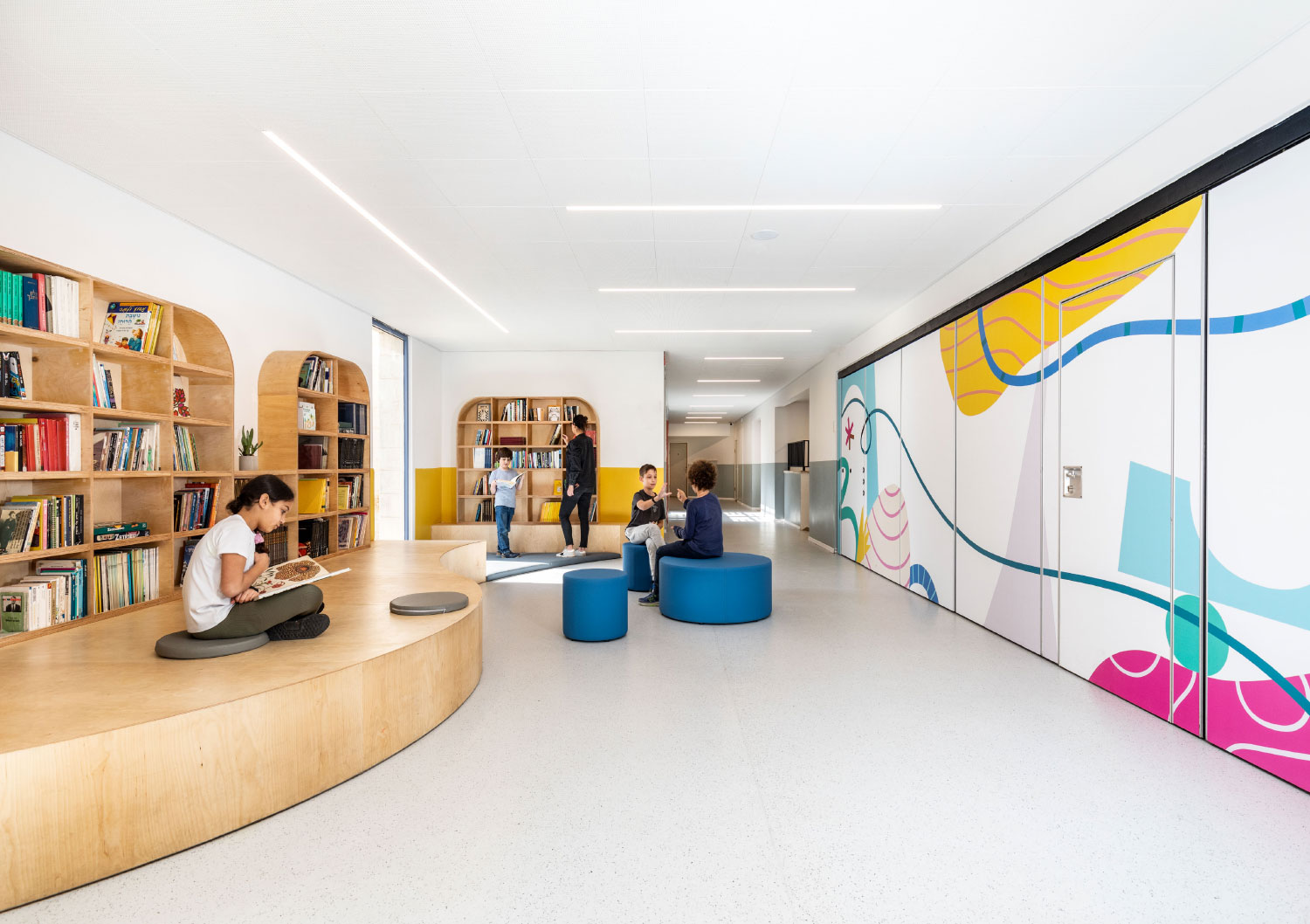
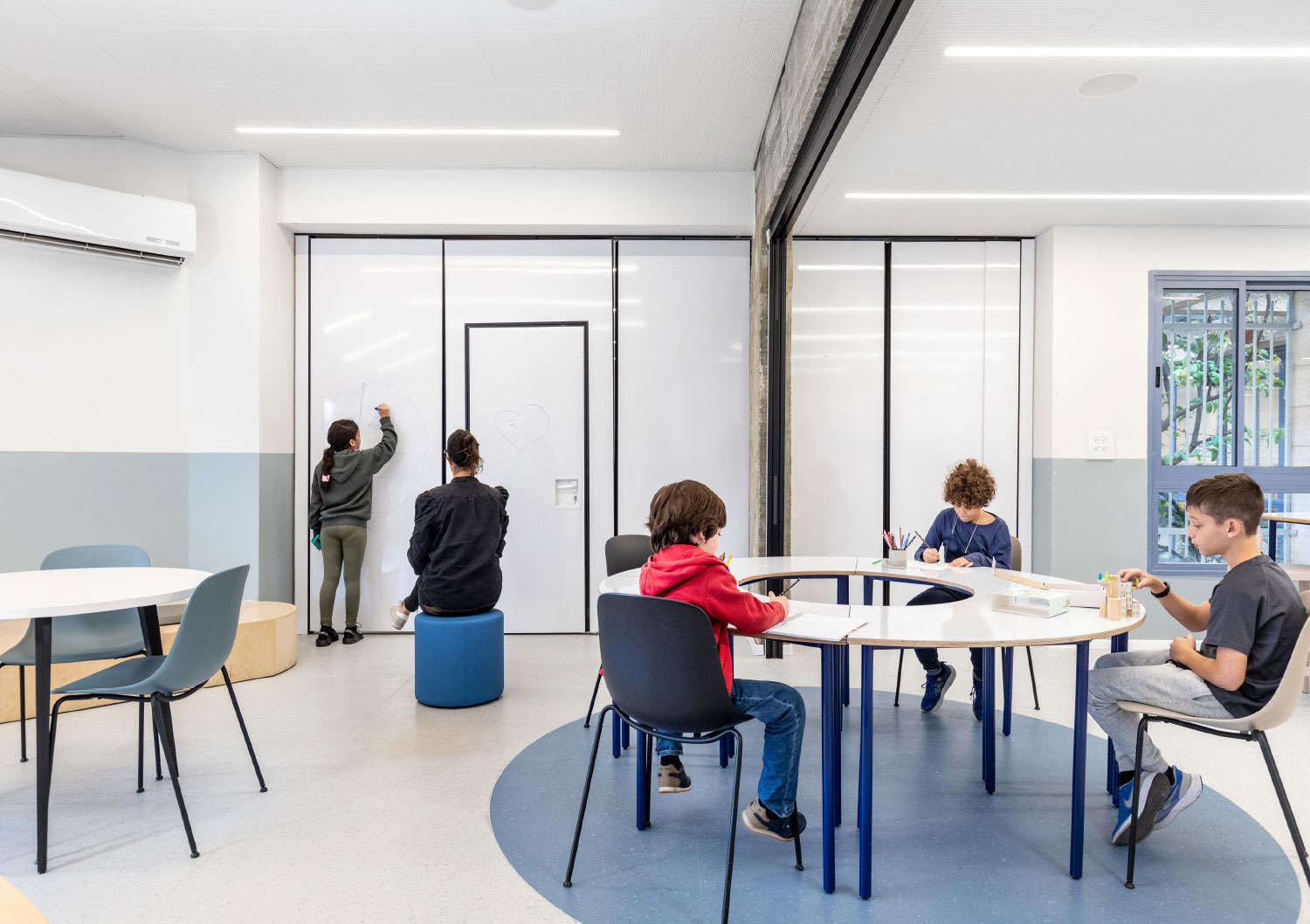
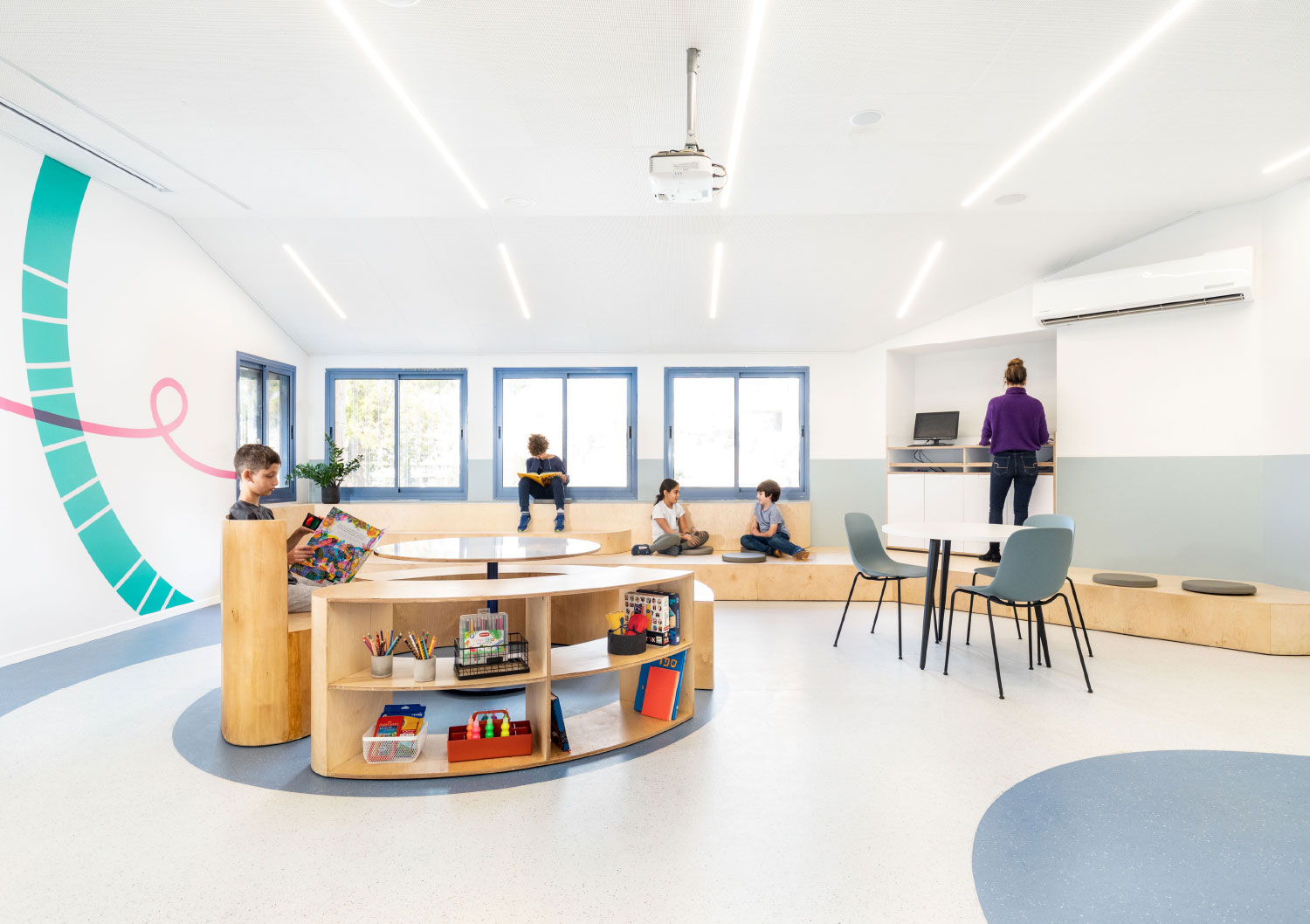
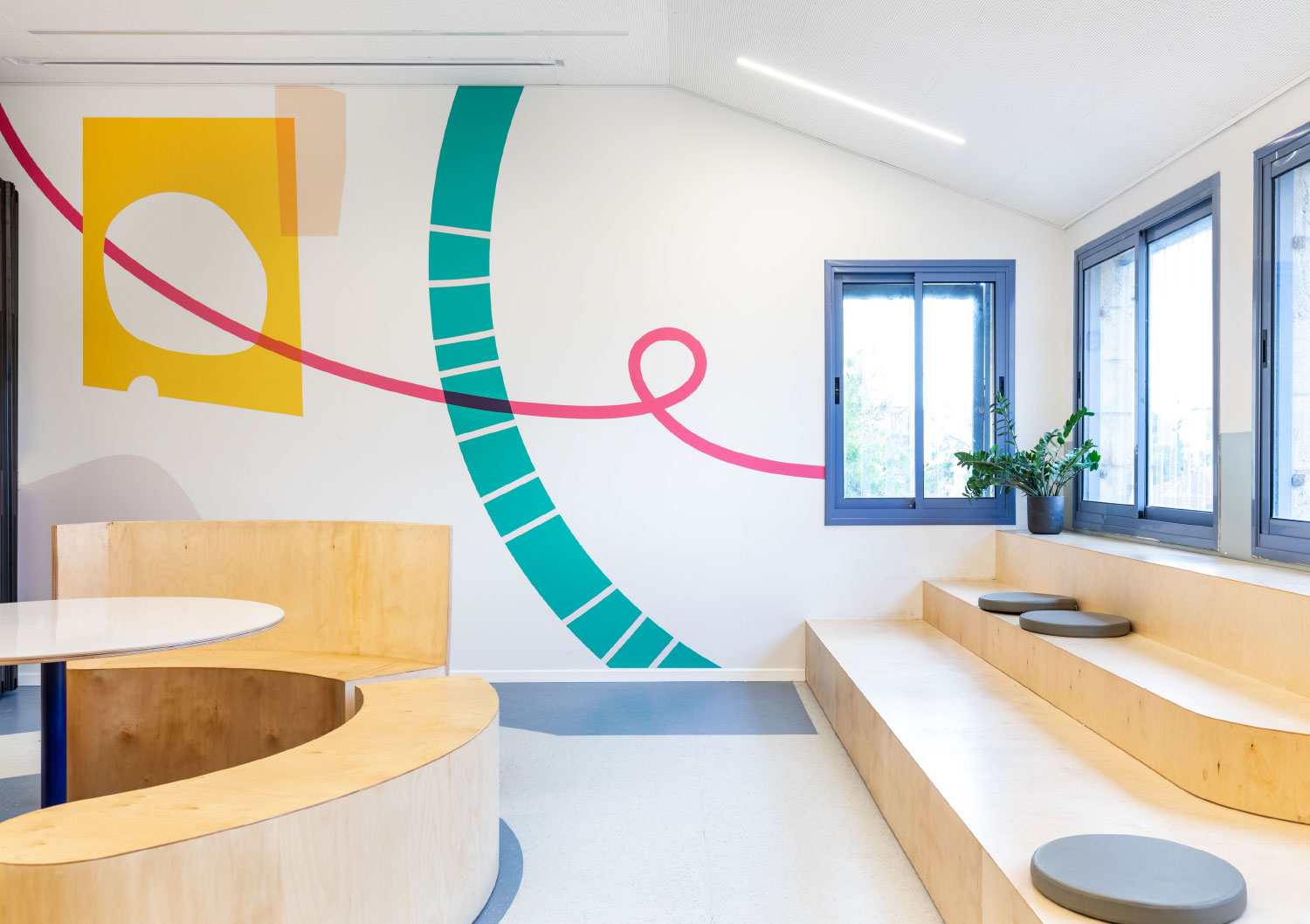
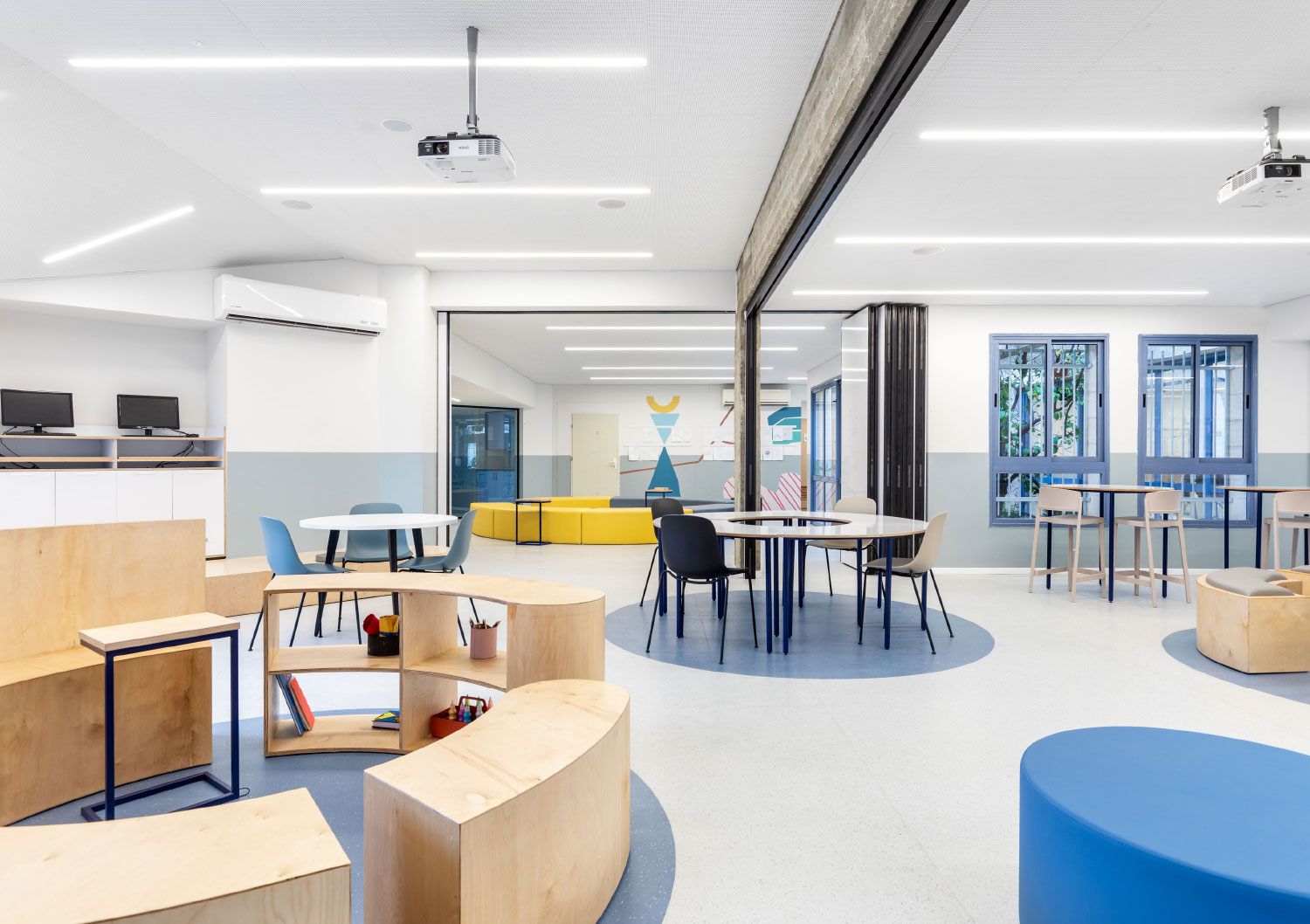
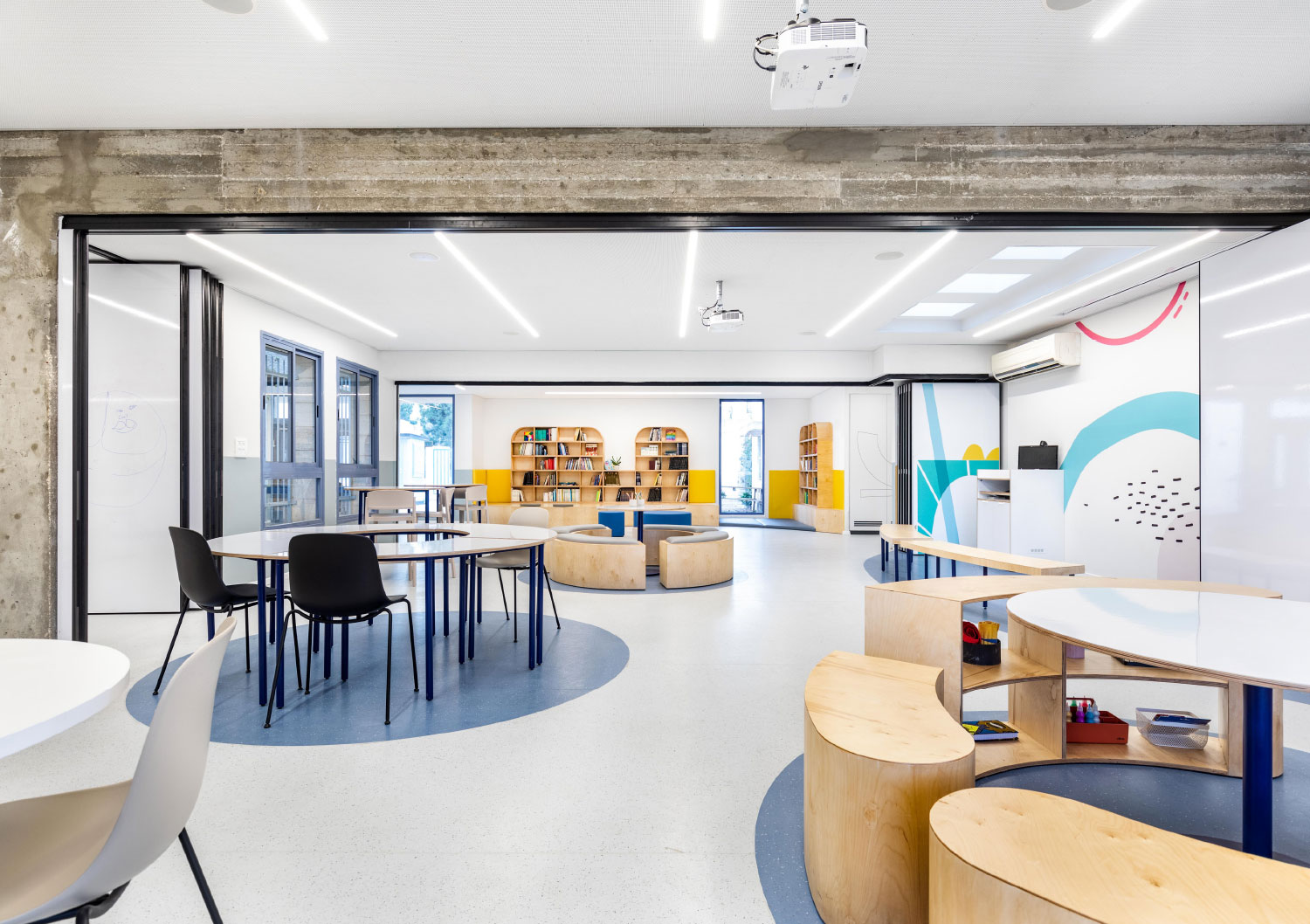
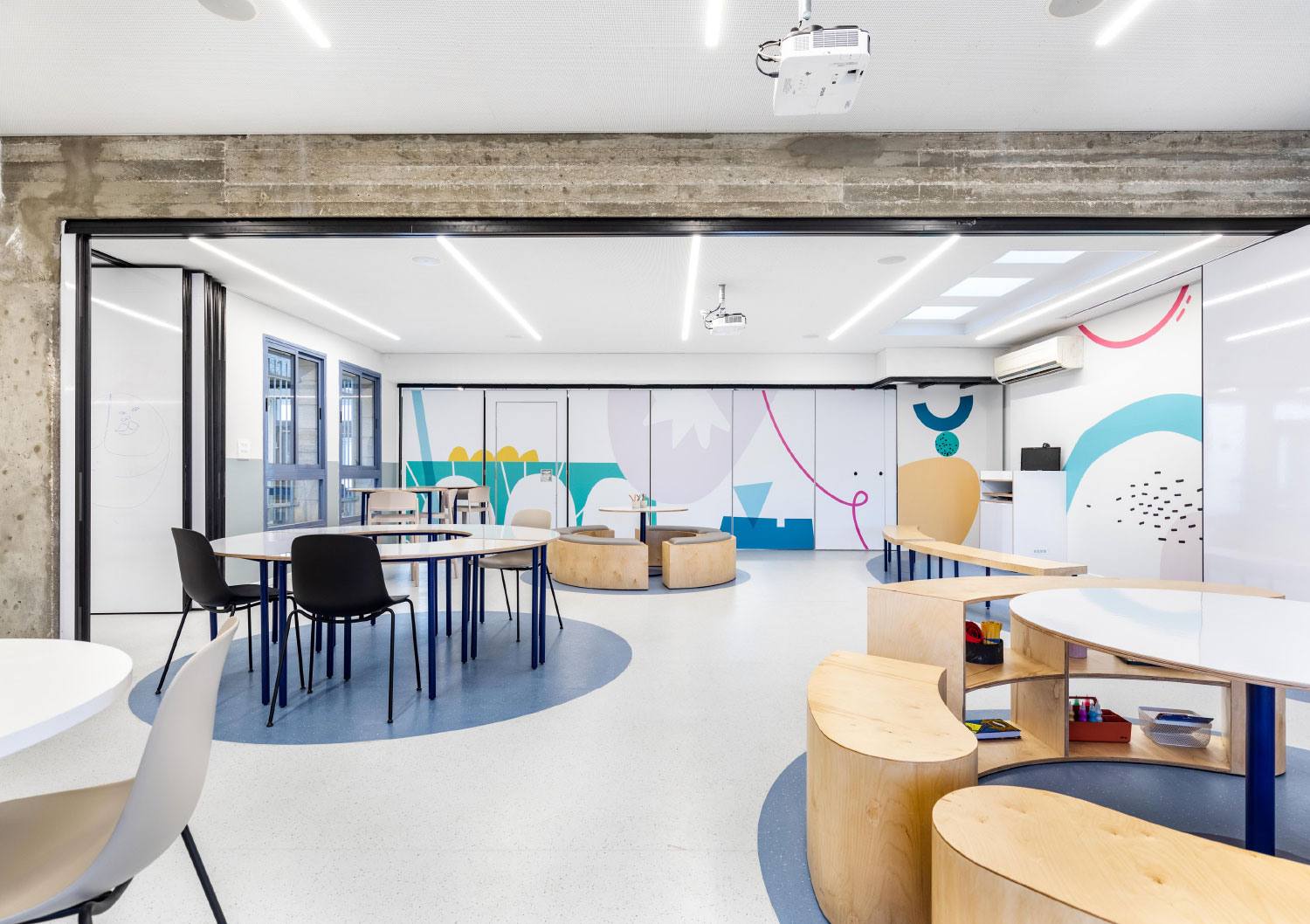
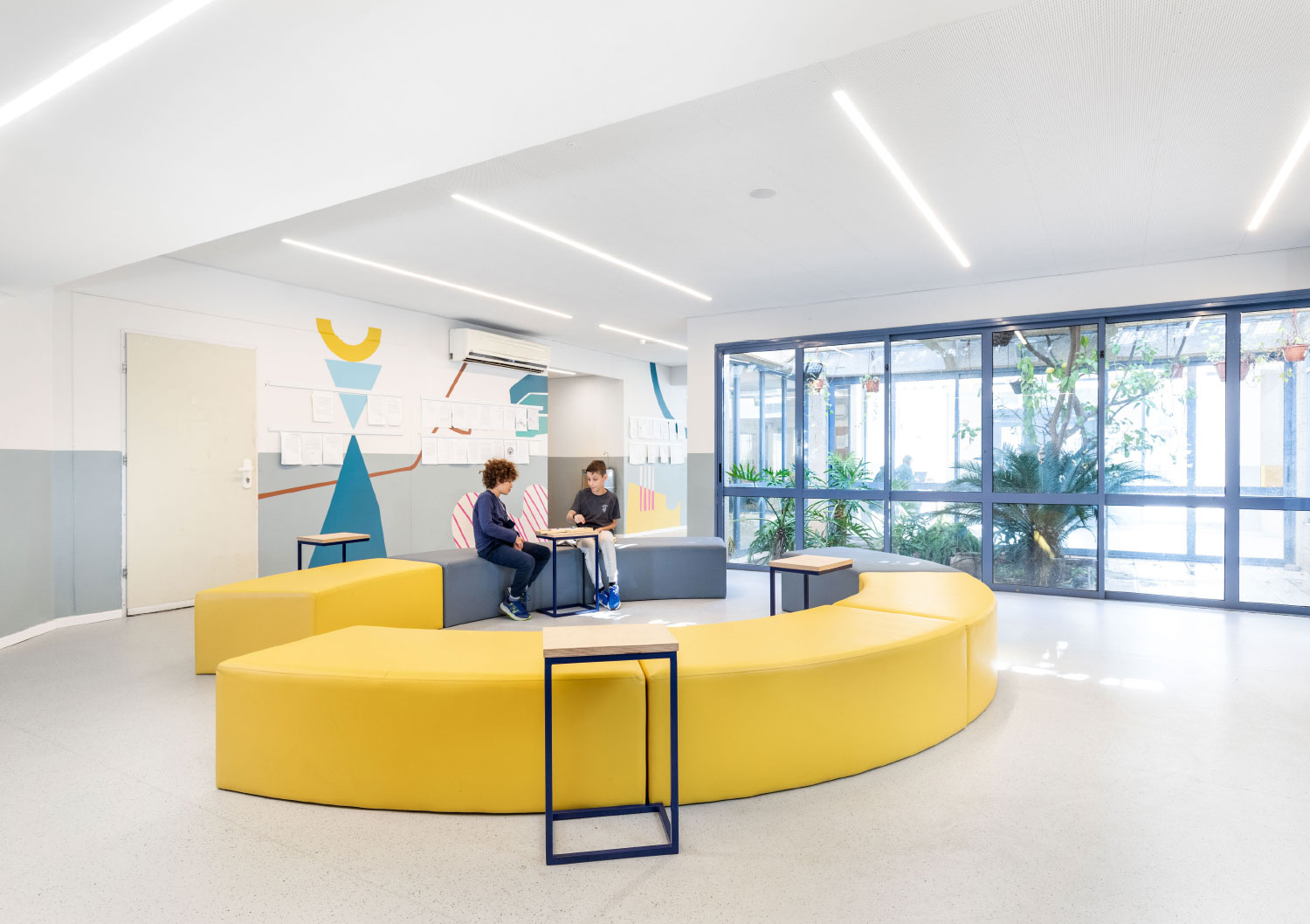
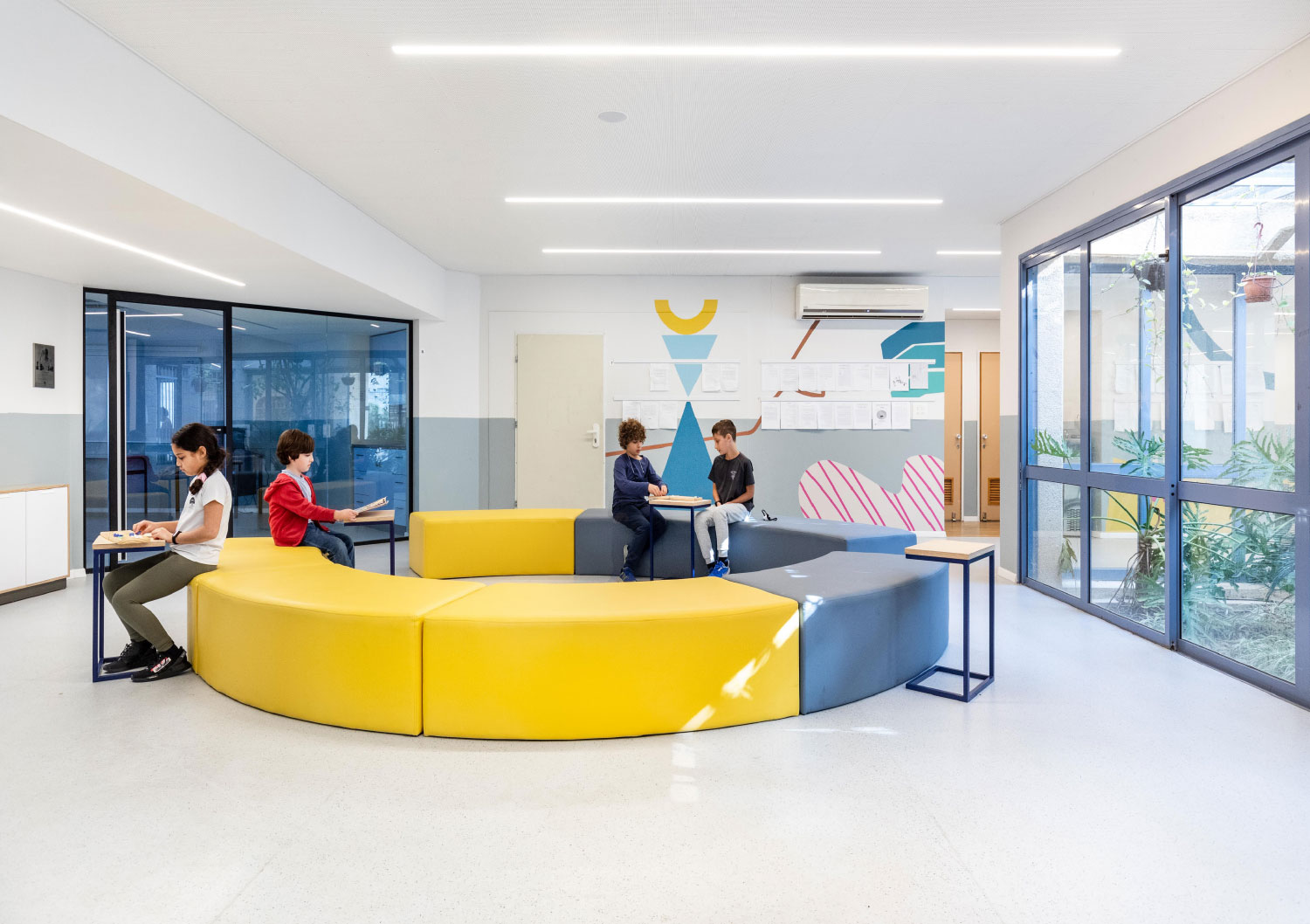
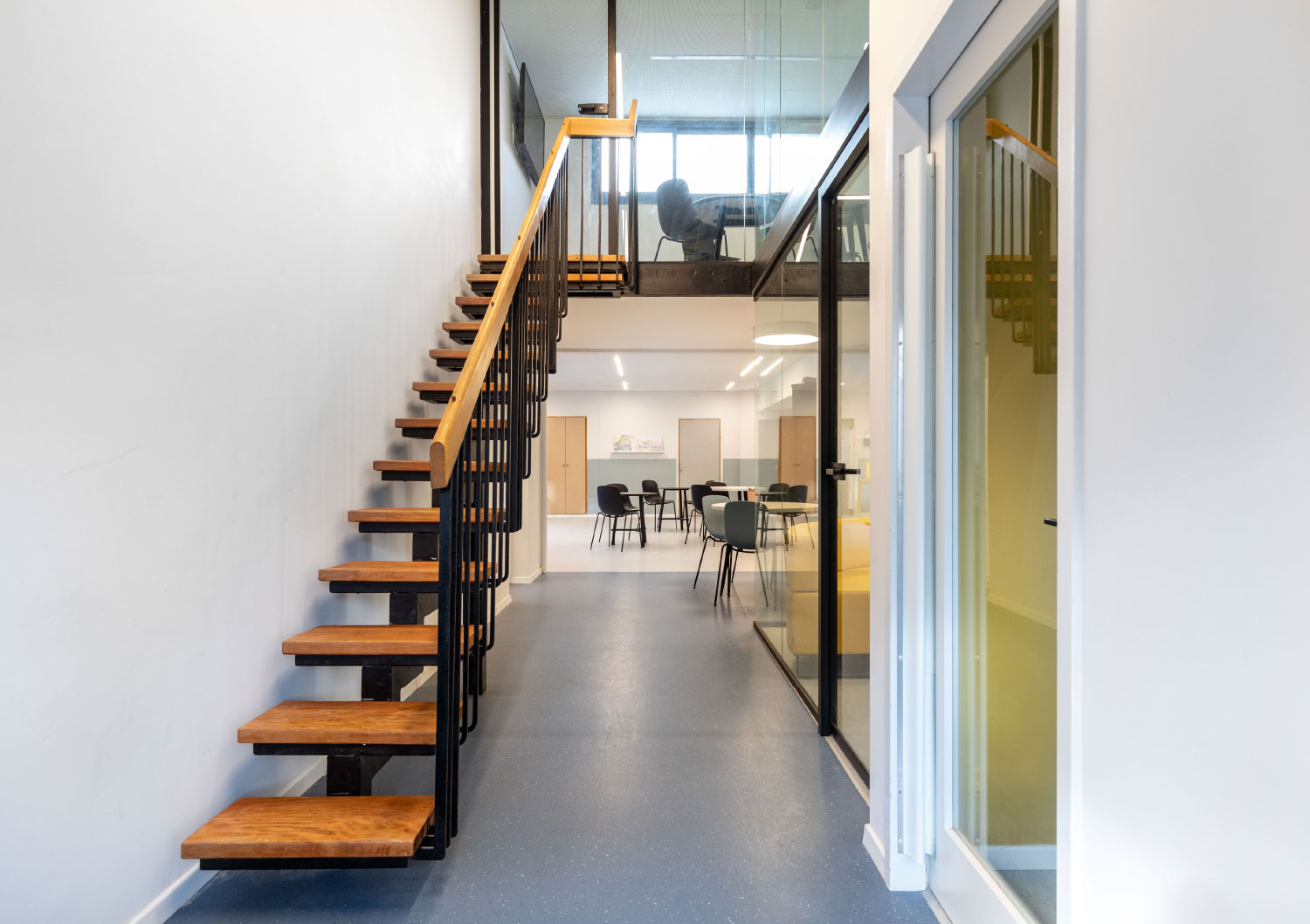
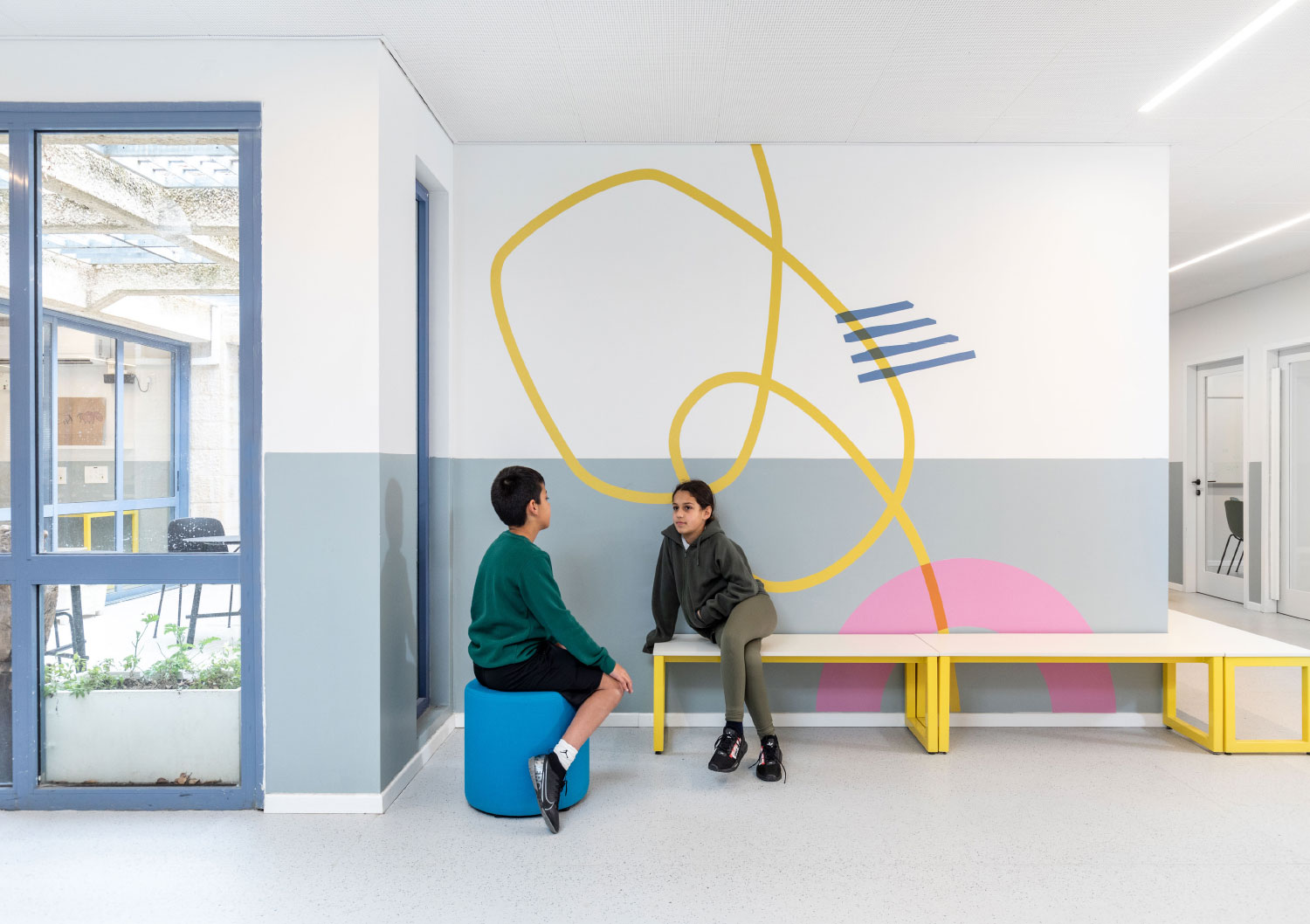
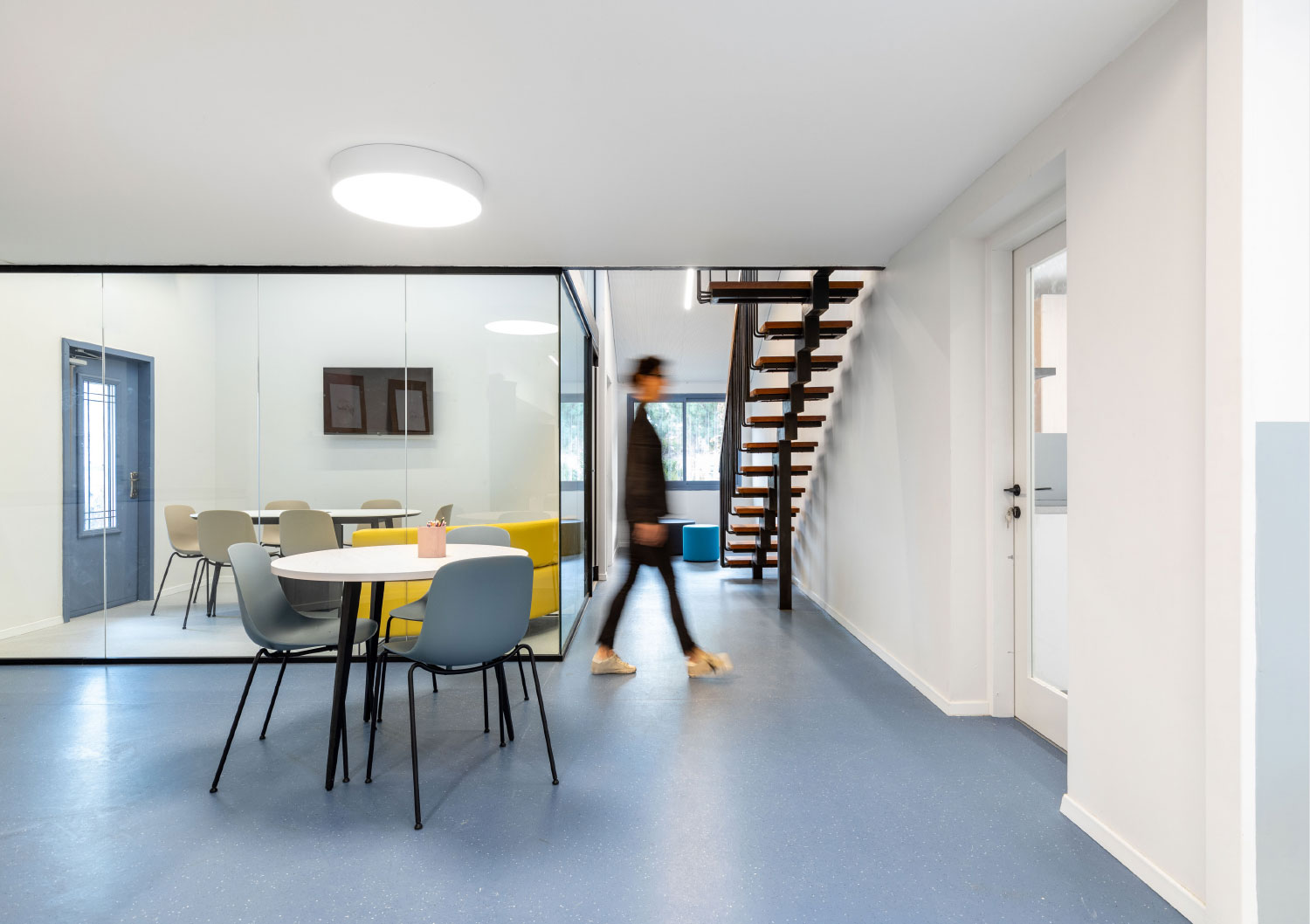
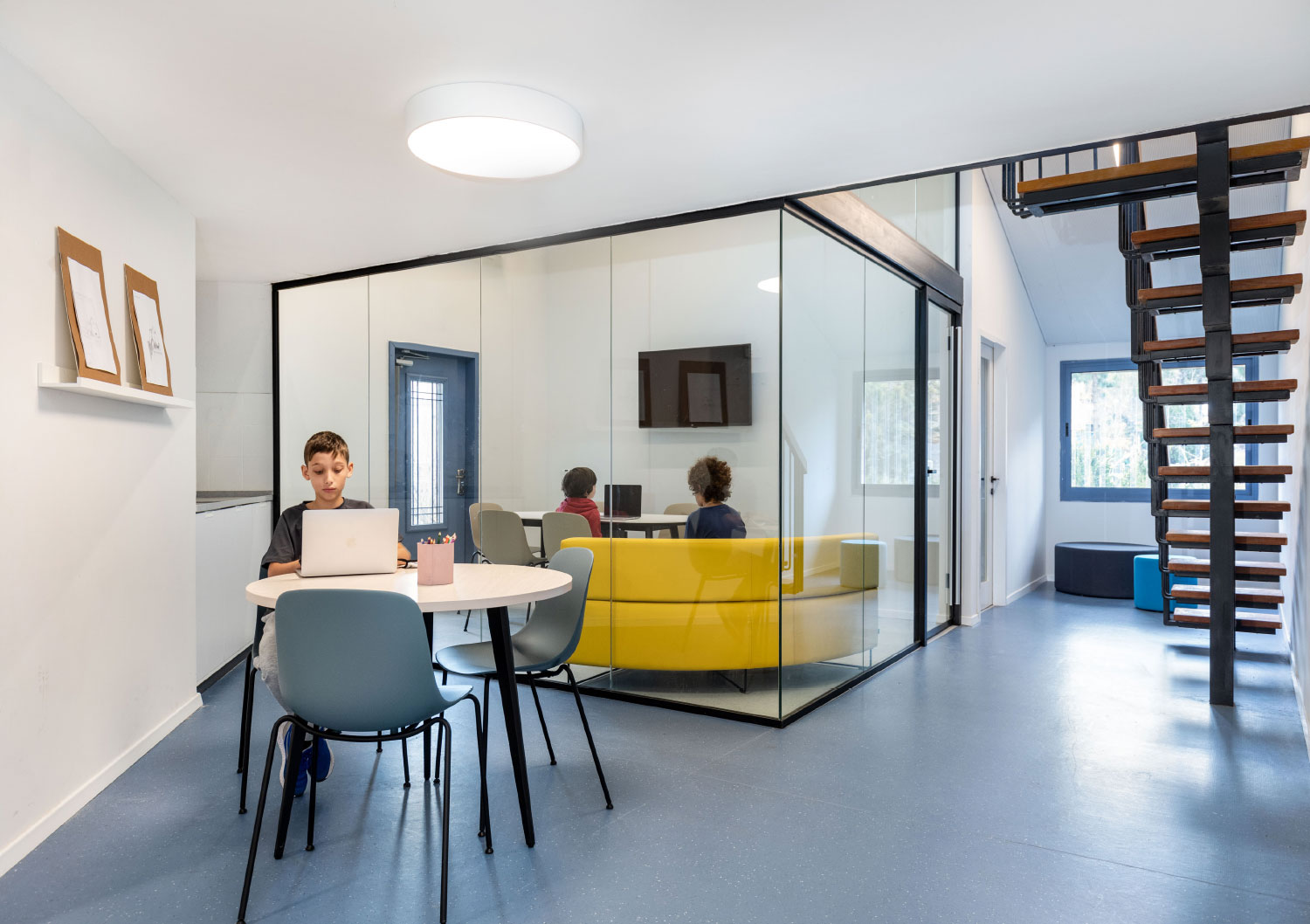
Ofek School // Public spaces and classrooms
Ofek School in Jerusalem is designed to house approximately 1,400 gifted and accomplished children and teens in grades 3 to 9. Although and perhaps because of the fact that what the students have in common are high cognitive abilities, the school emphasizes not only the intellectual abilities of the gifted, but also the development of social and emotional skills, which are often the weak points of these children.
Ofek School // Public spaces and classrooms
Ofek School in Jerusalem is designed to provide a home for gifted and outstanding children and youth. The school has about 1,400 students between 3rd. to the 9th. grade, emphasizing not only the intellectual abilities of the gifted but also the development of social and emotional skills.
